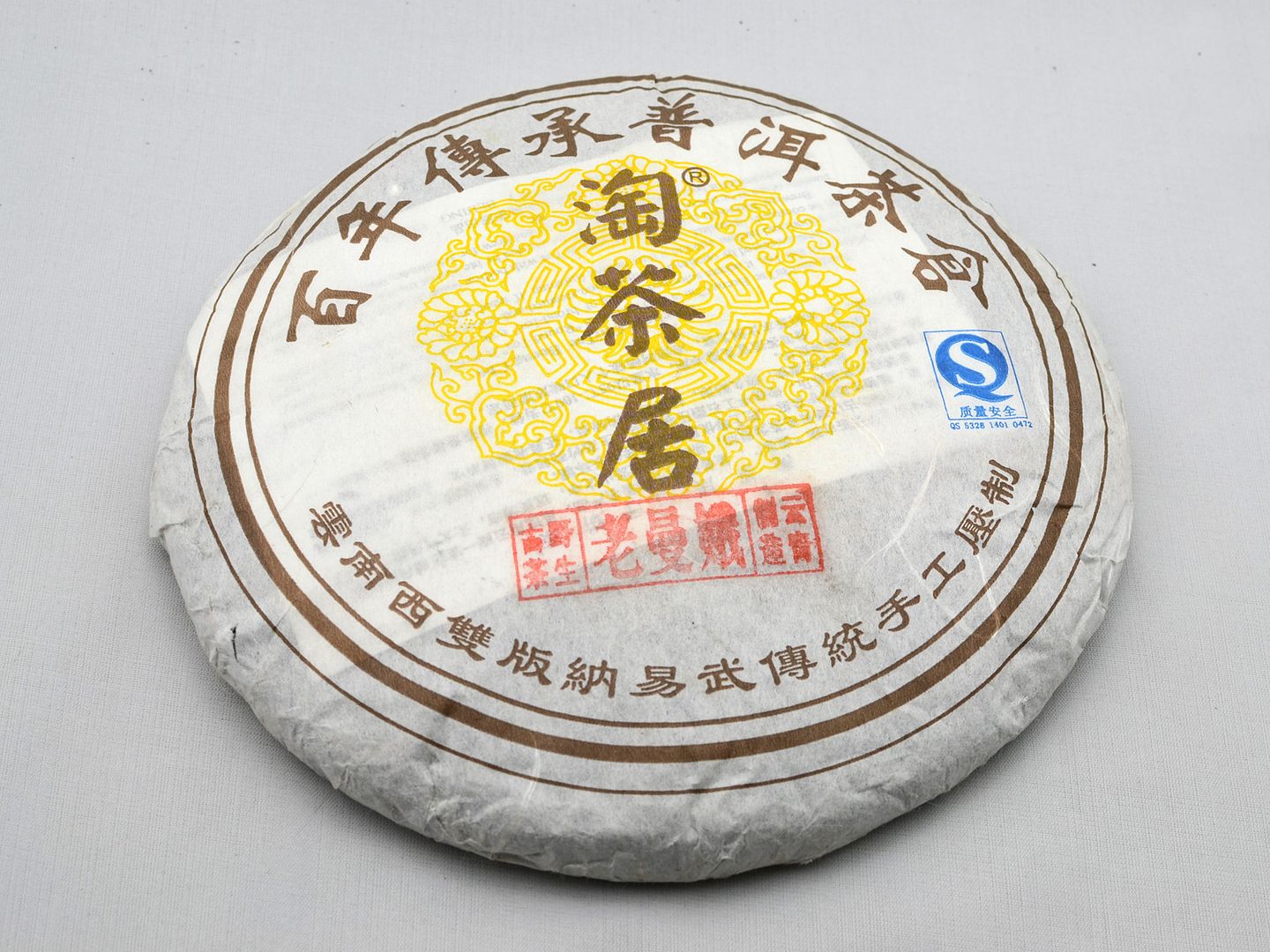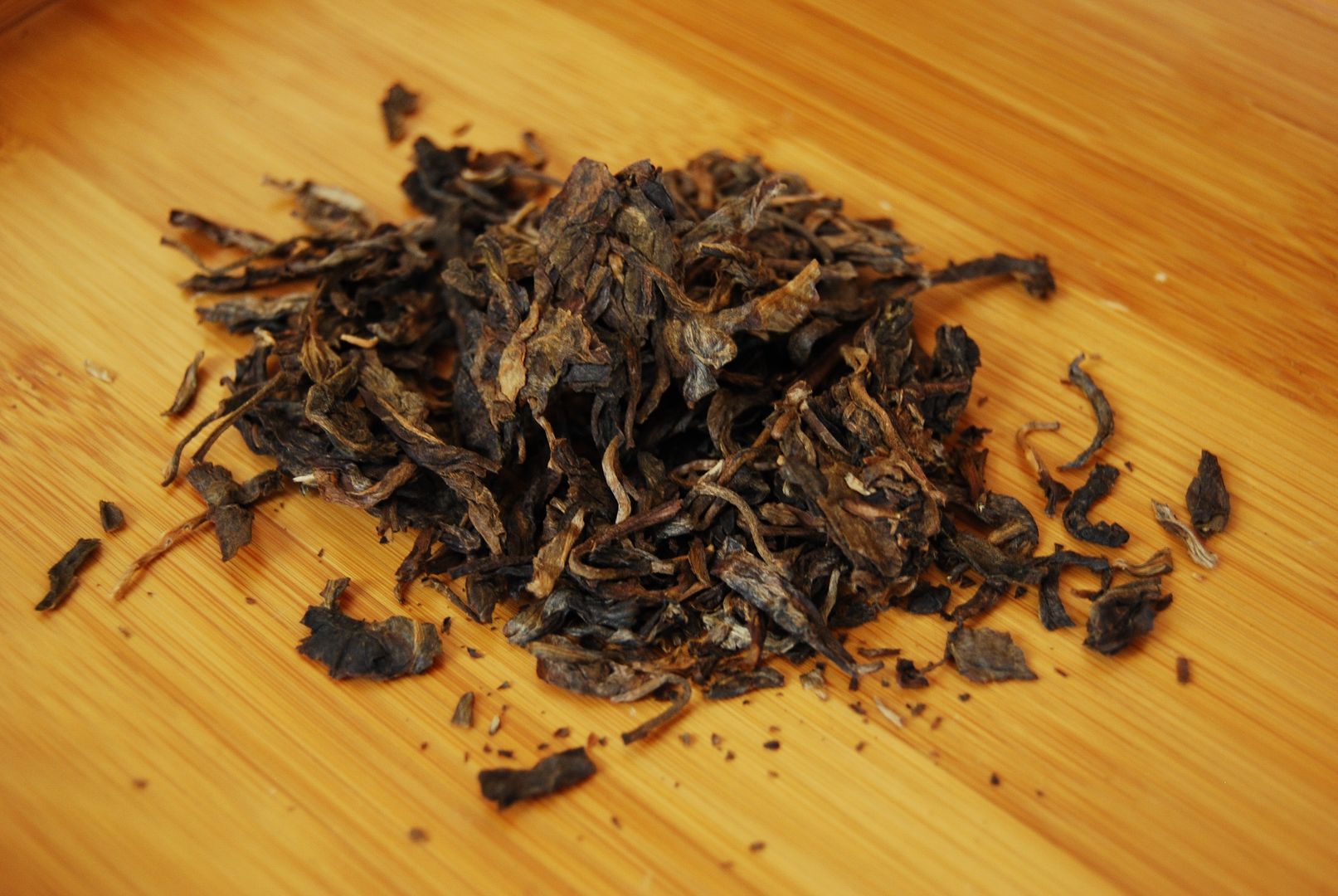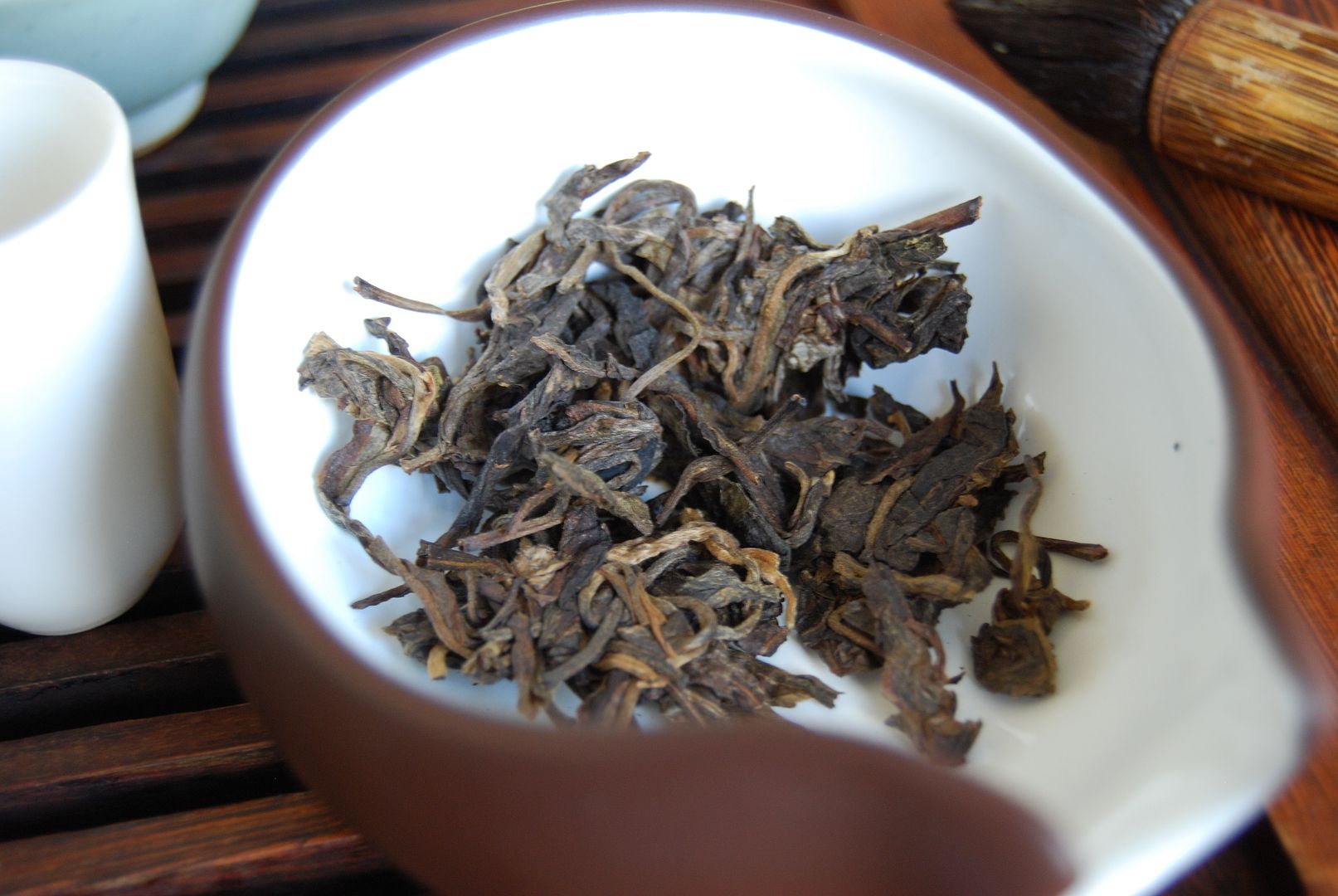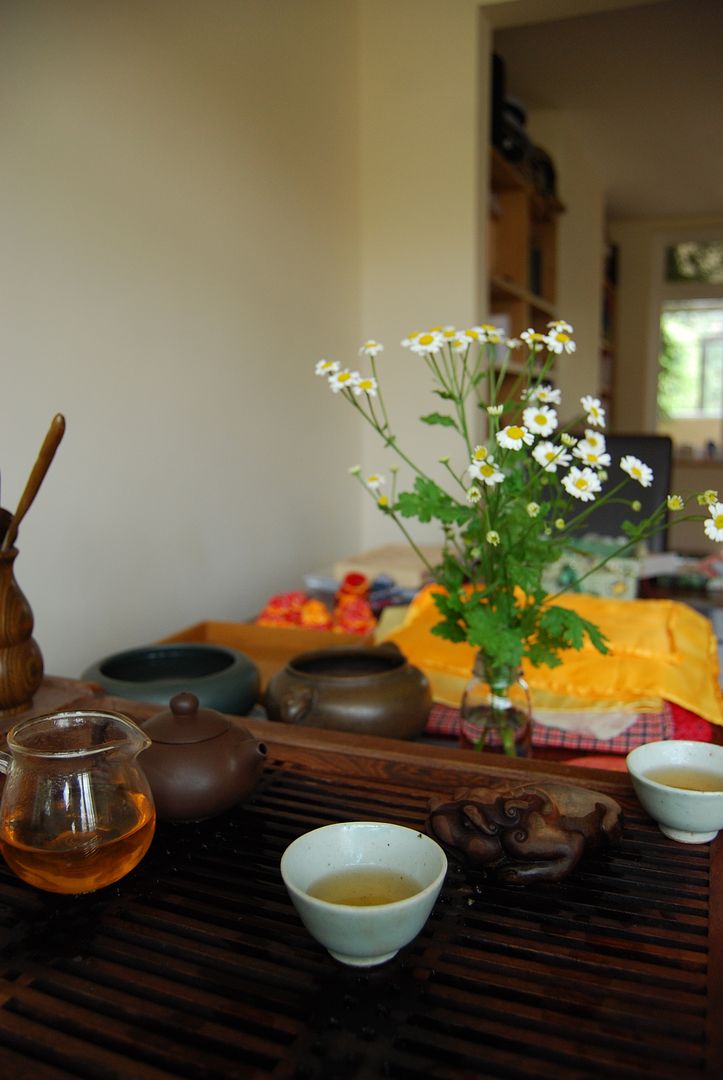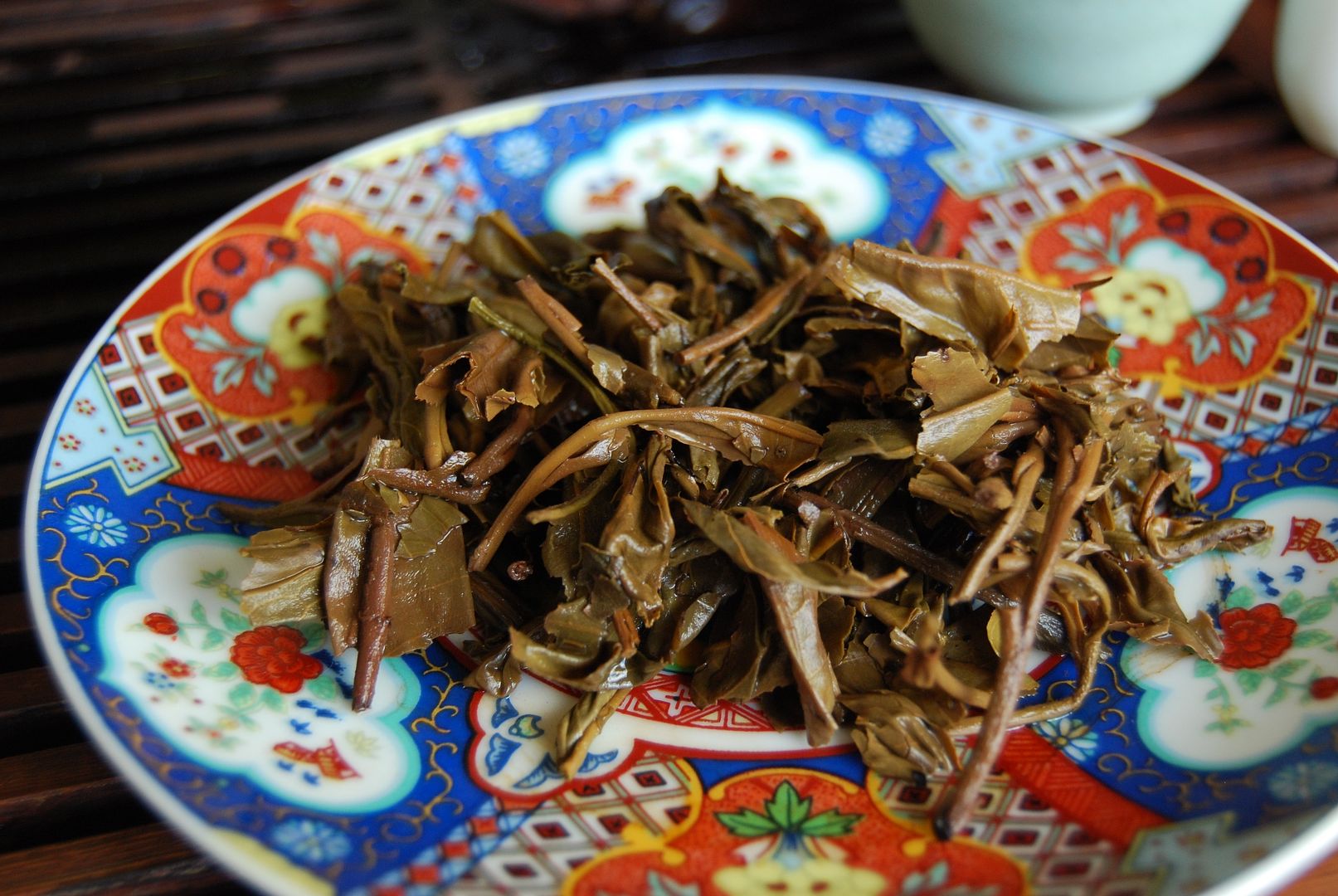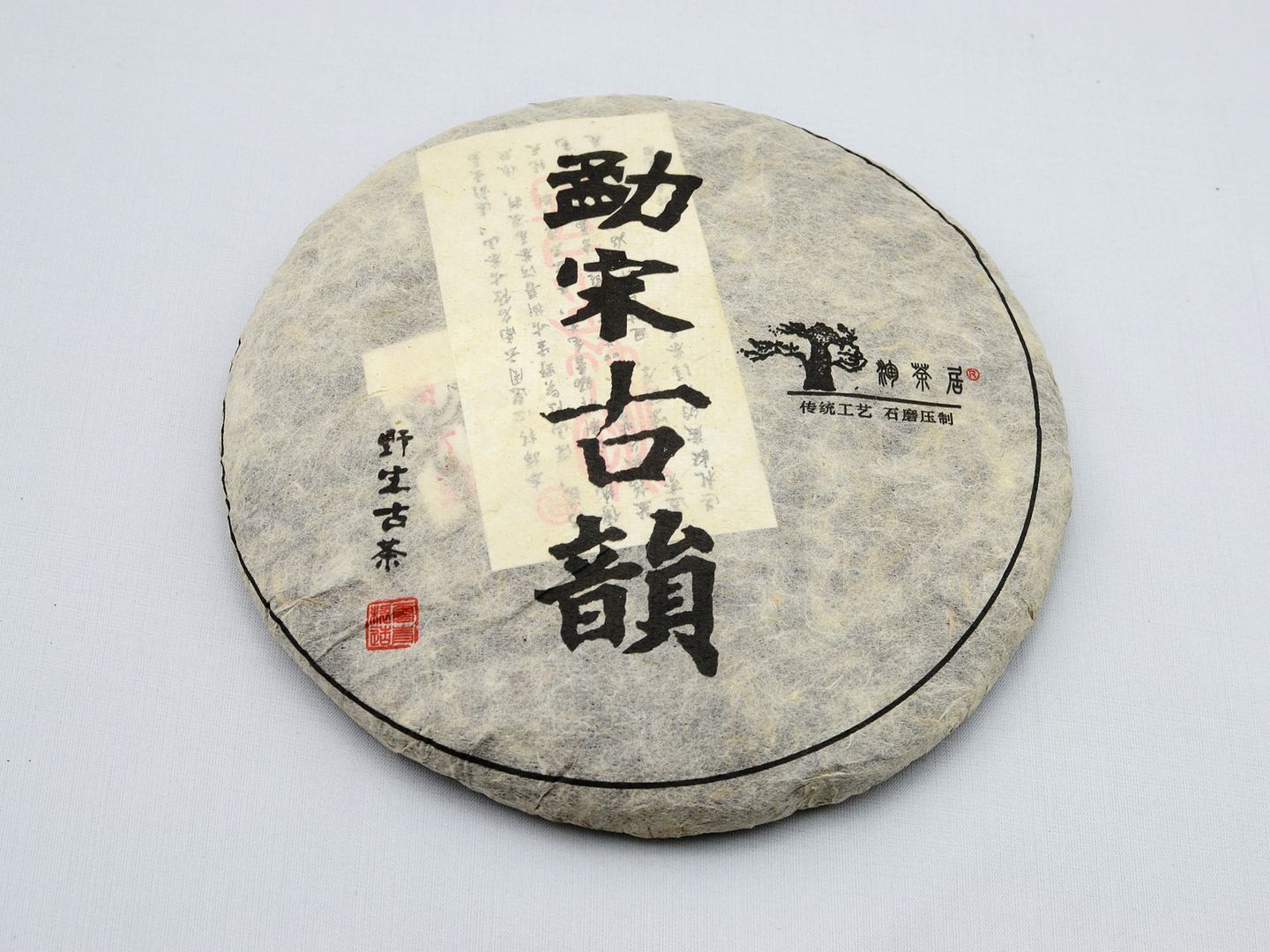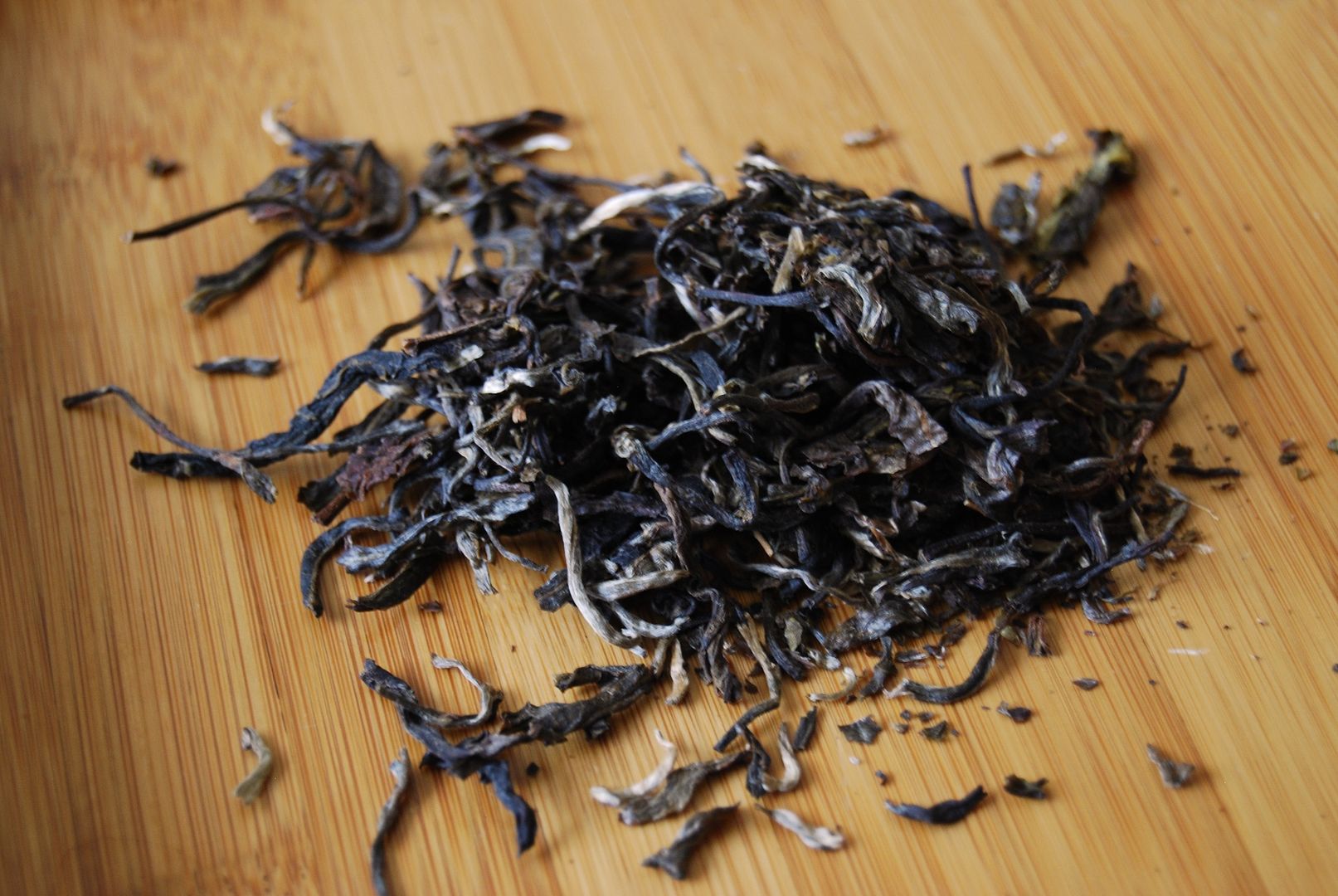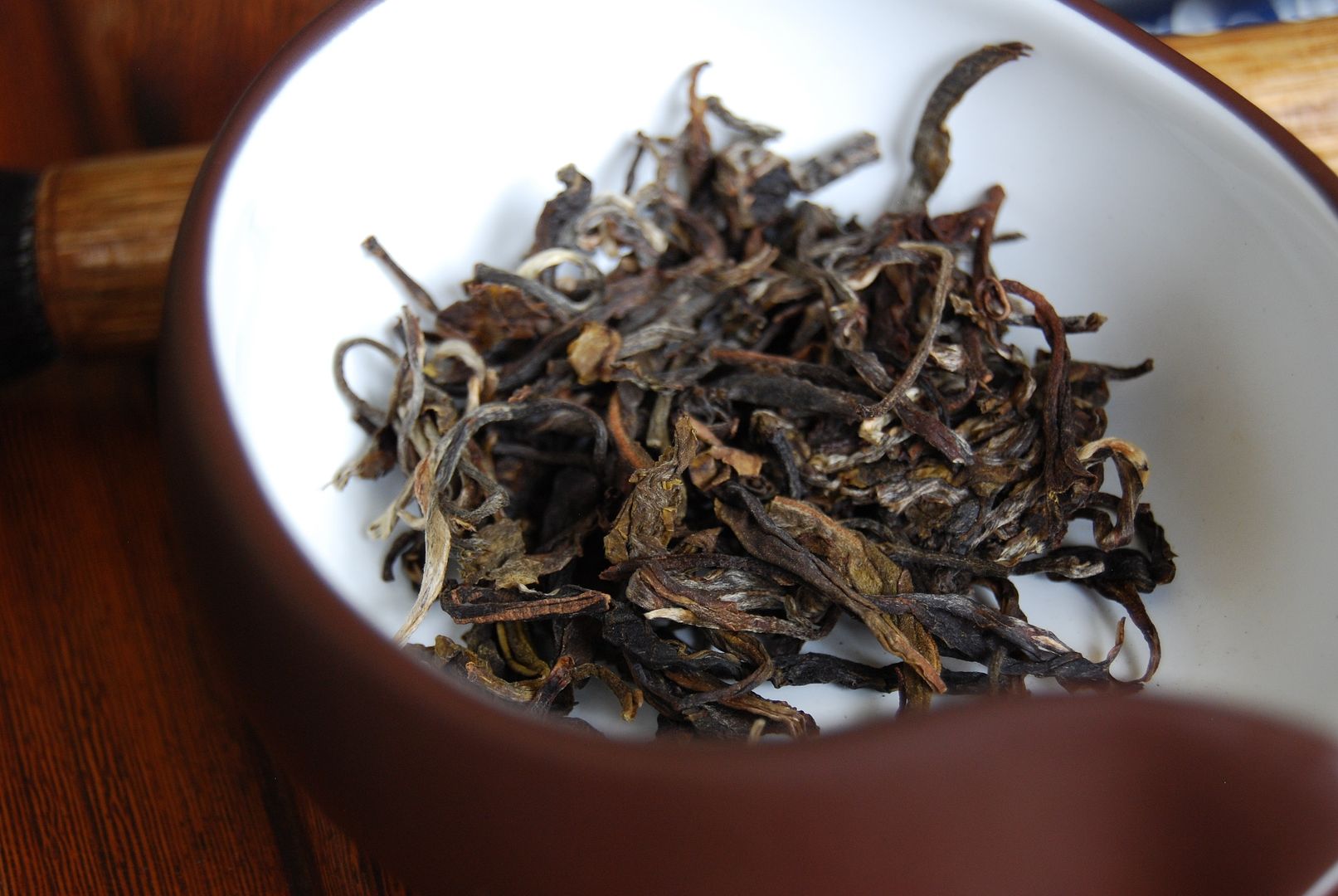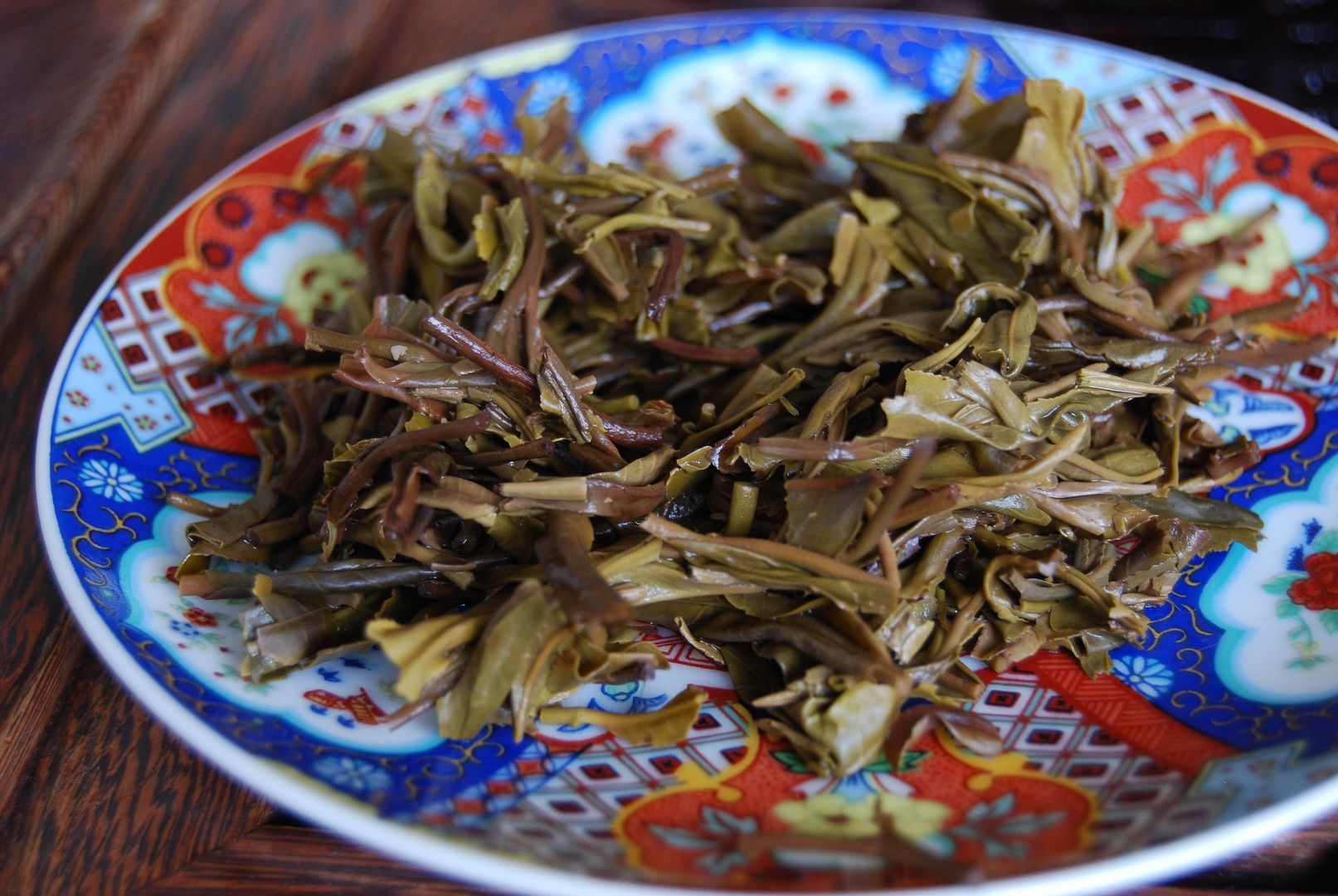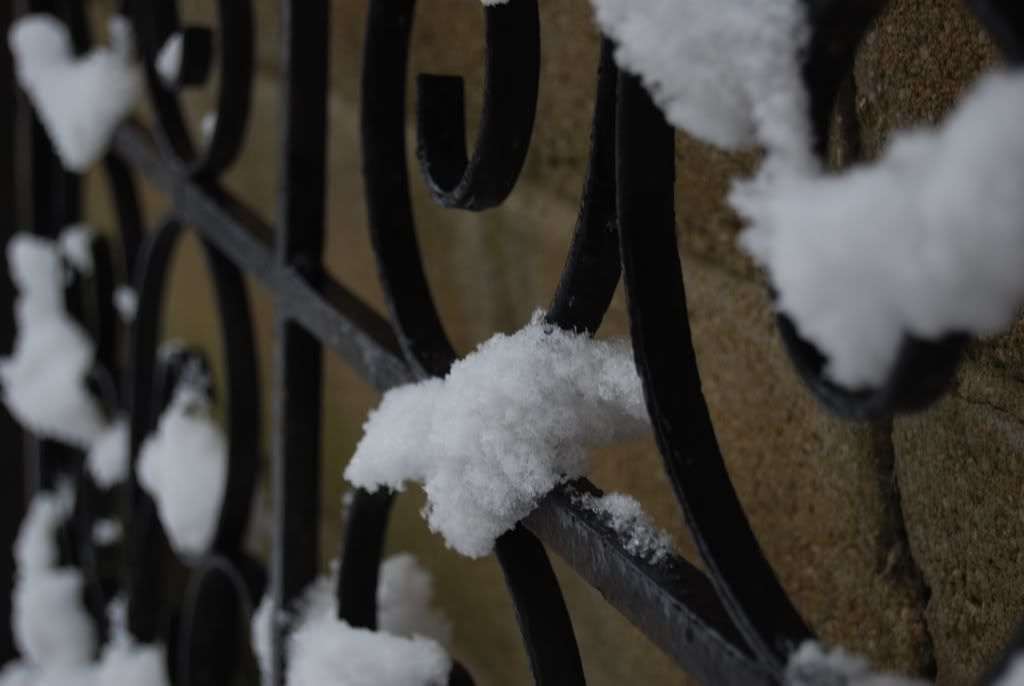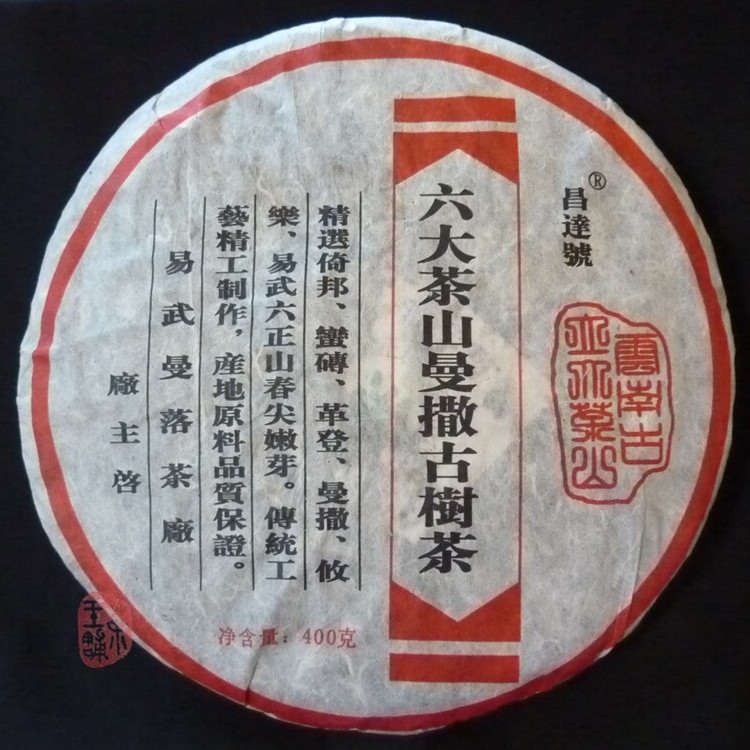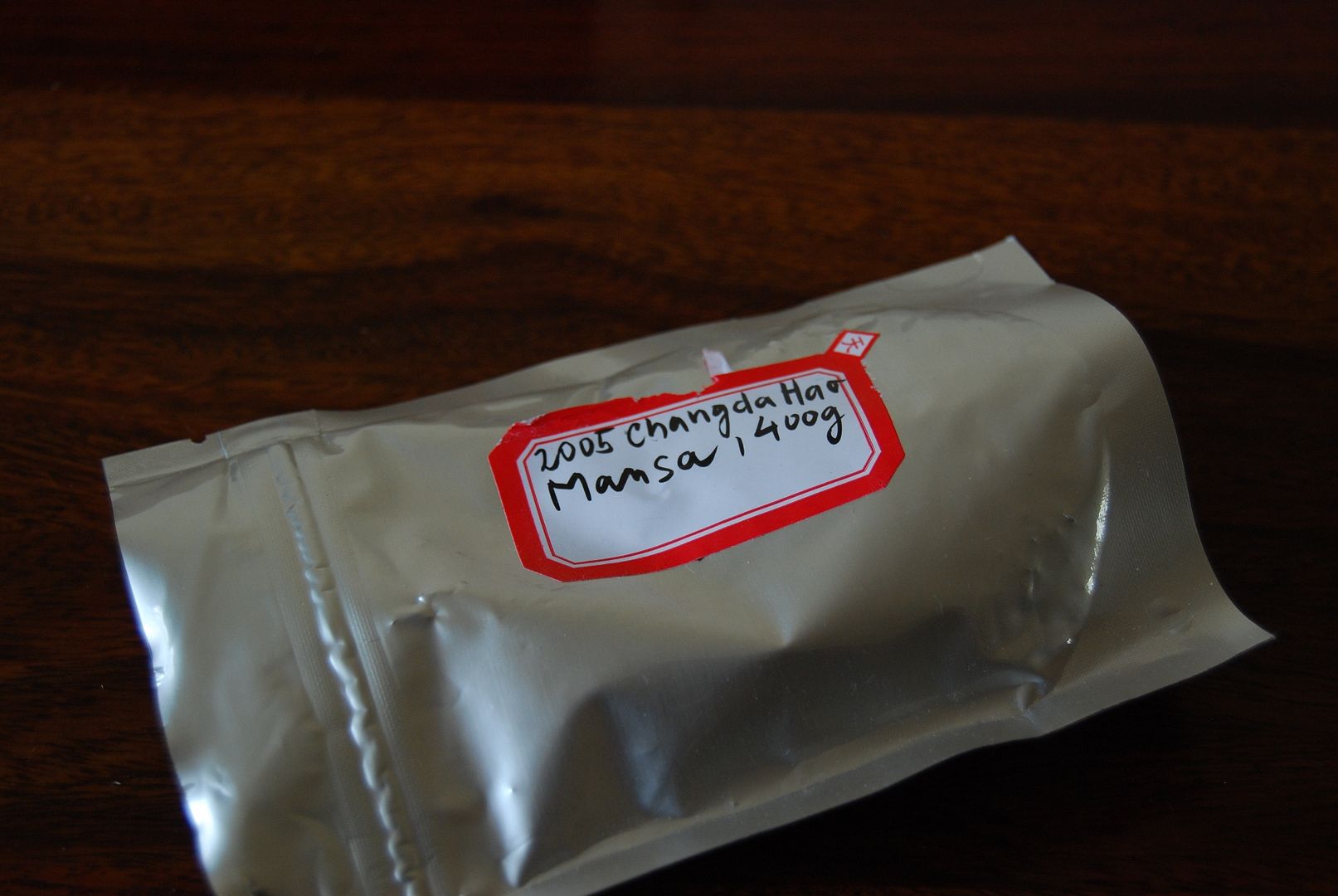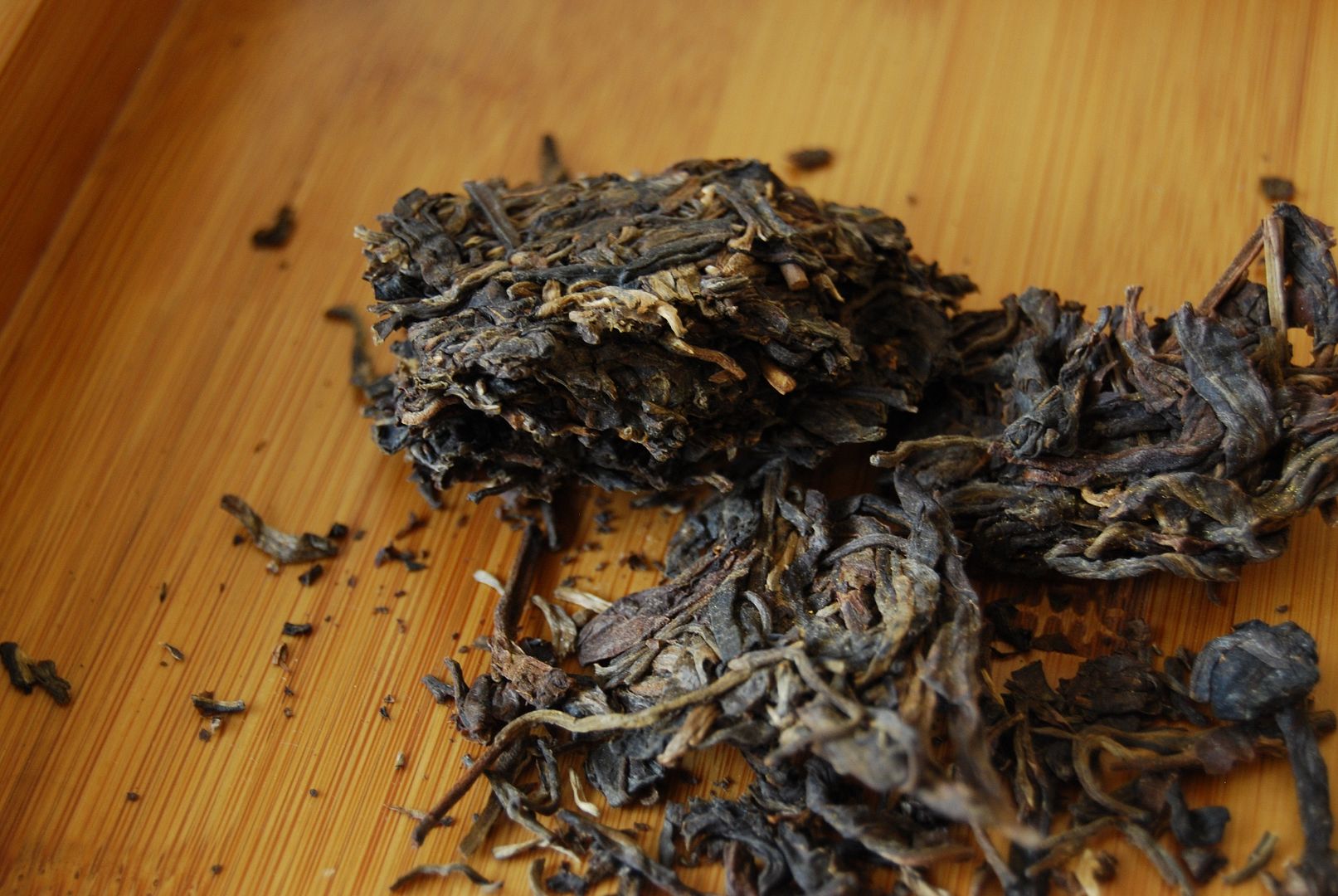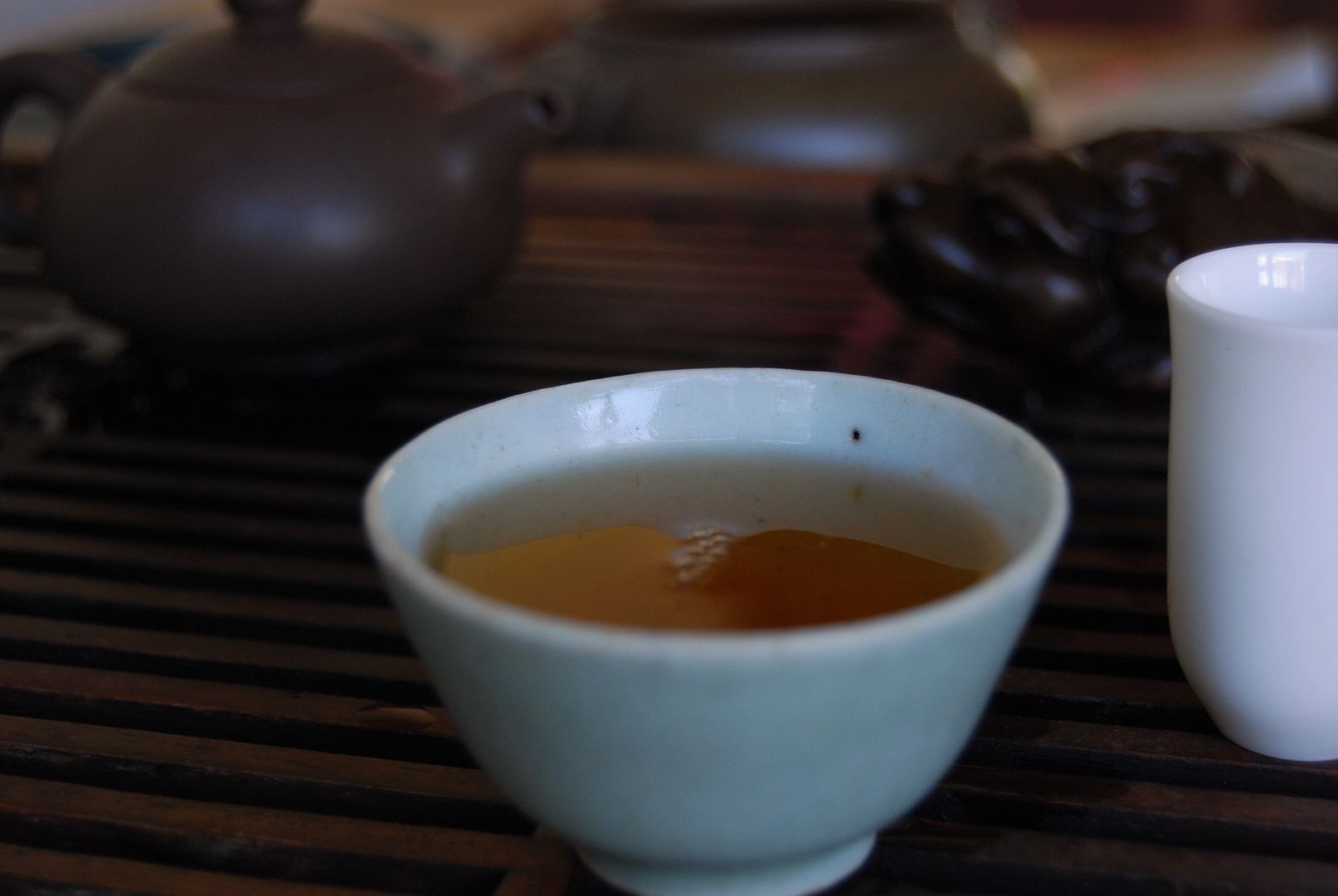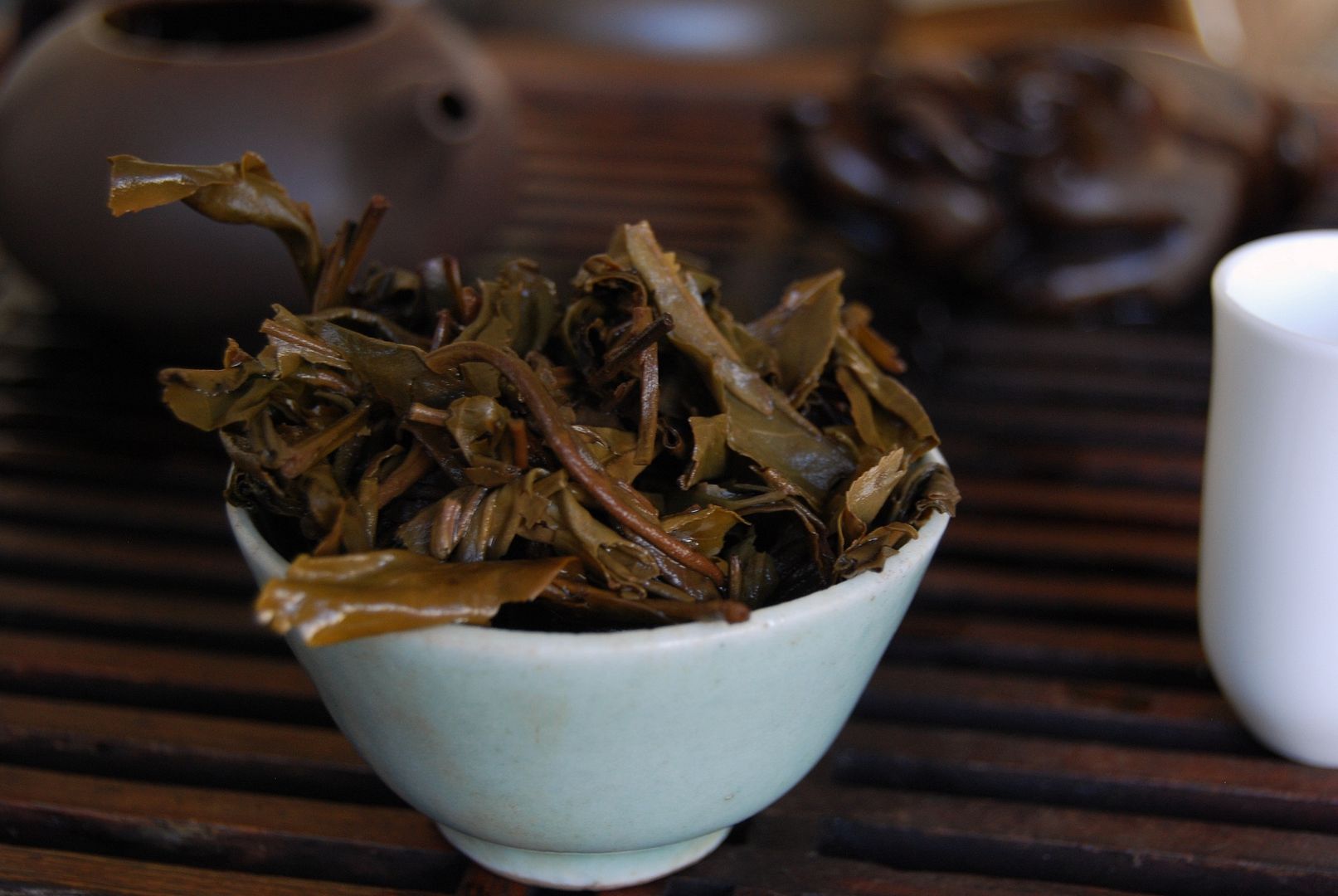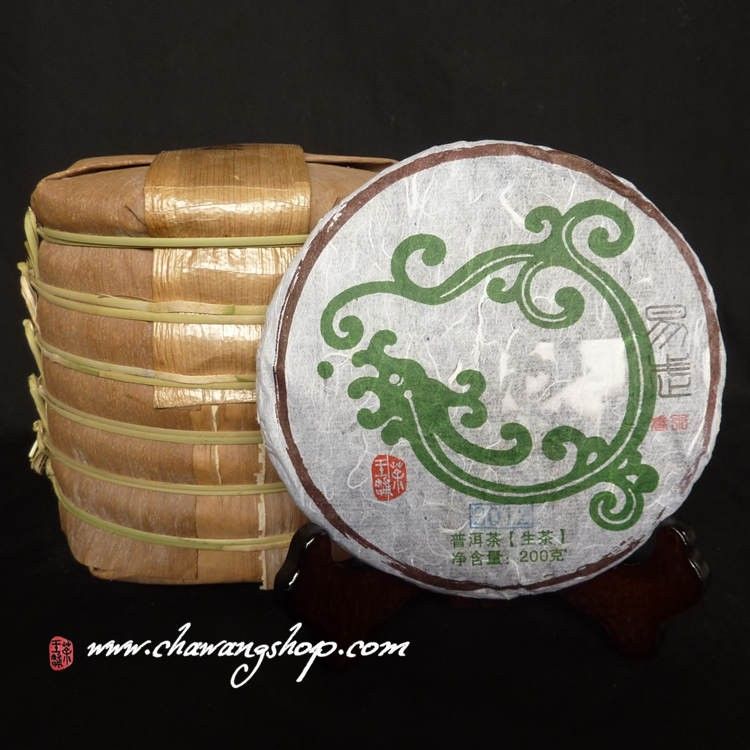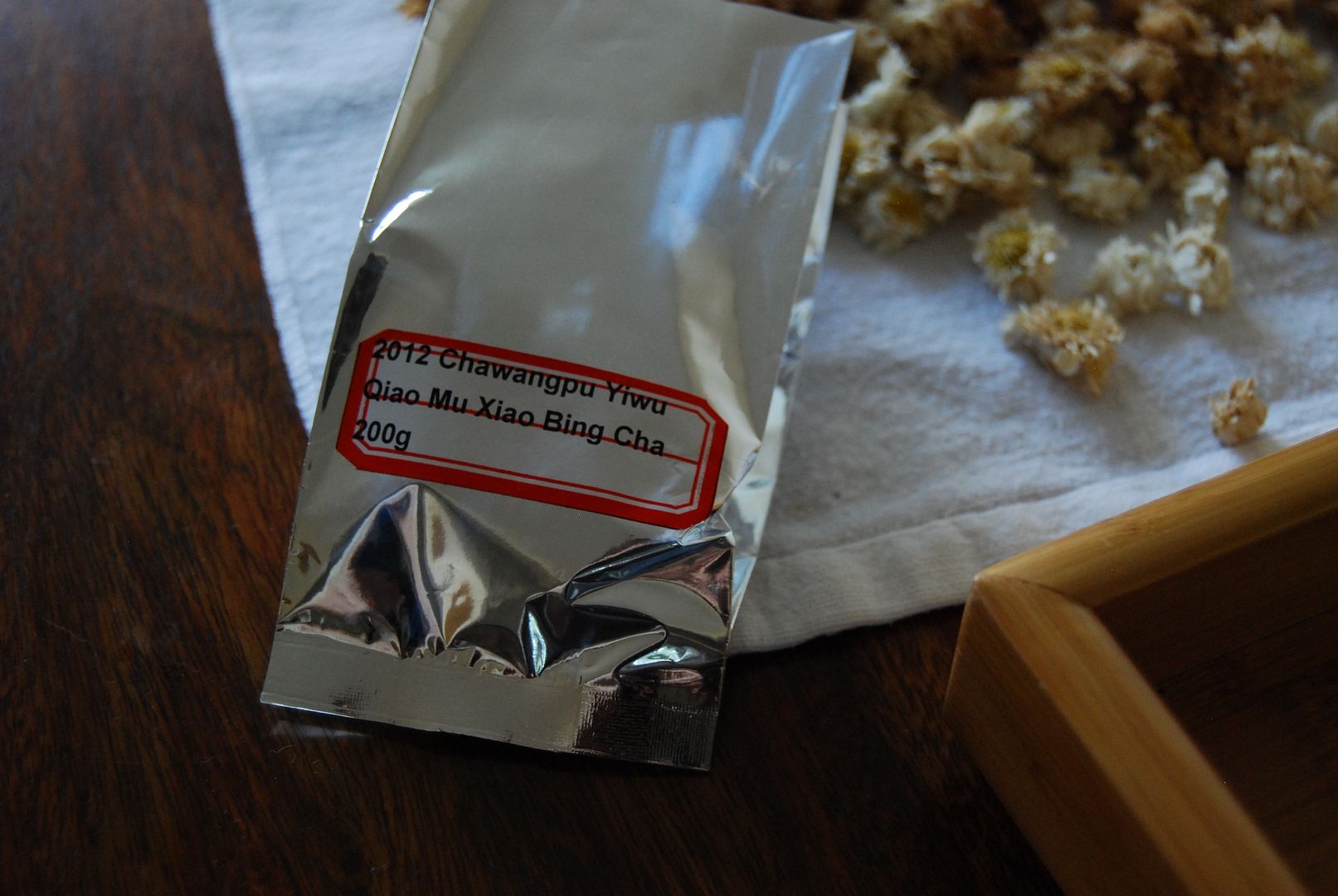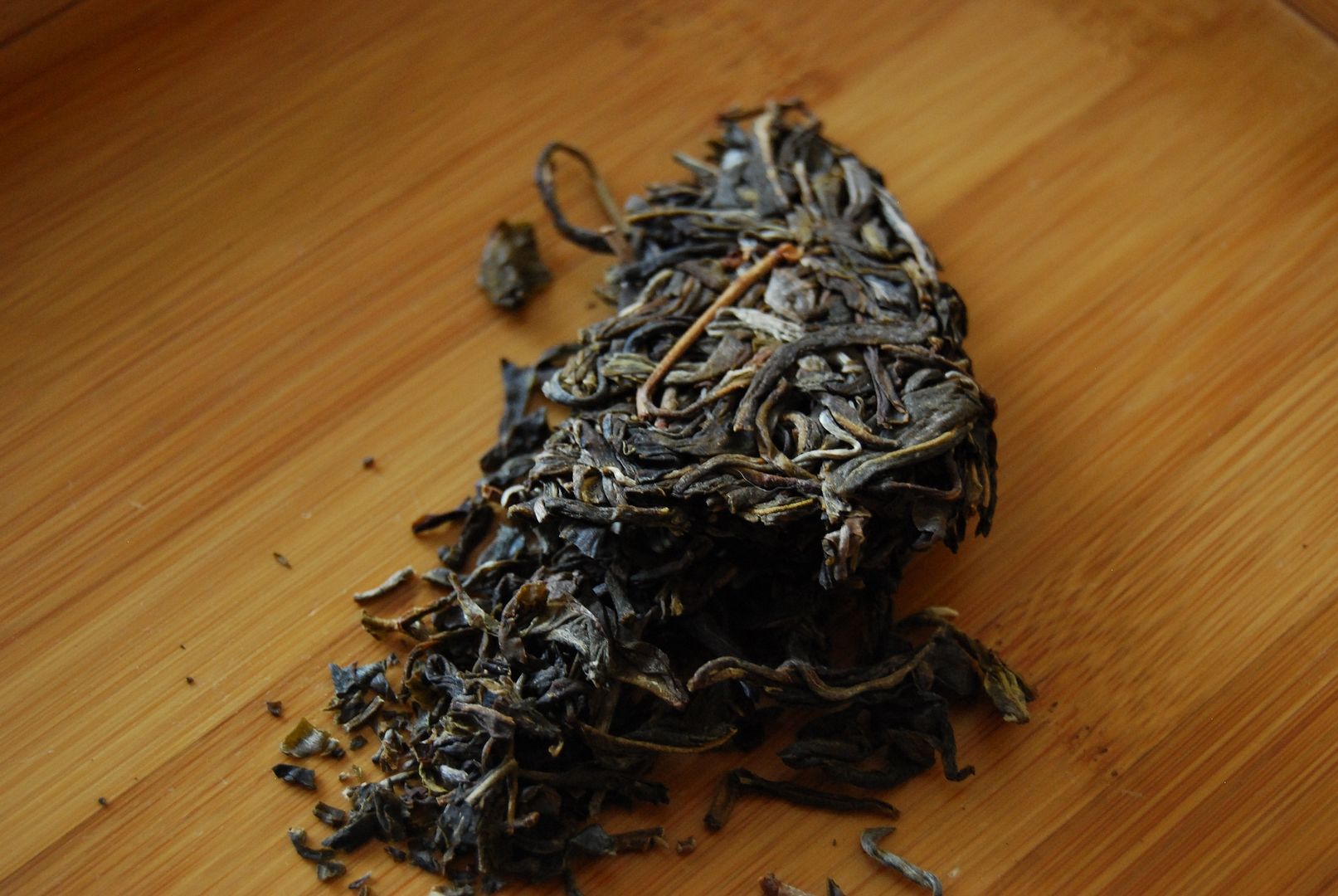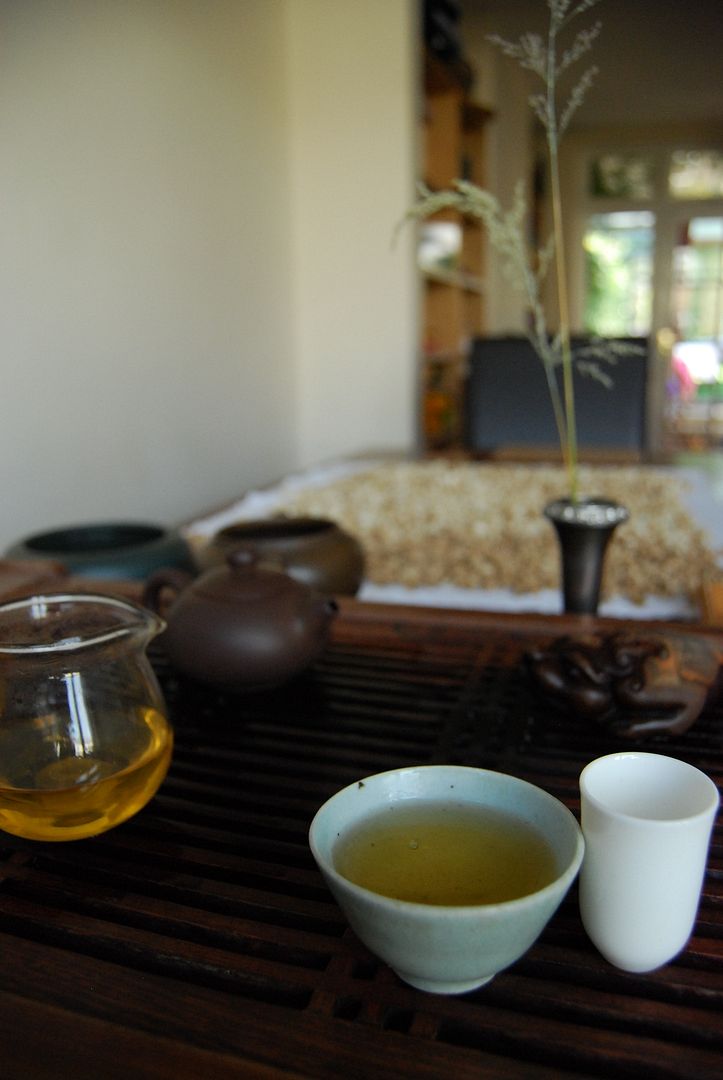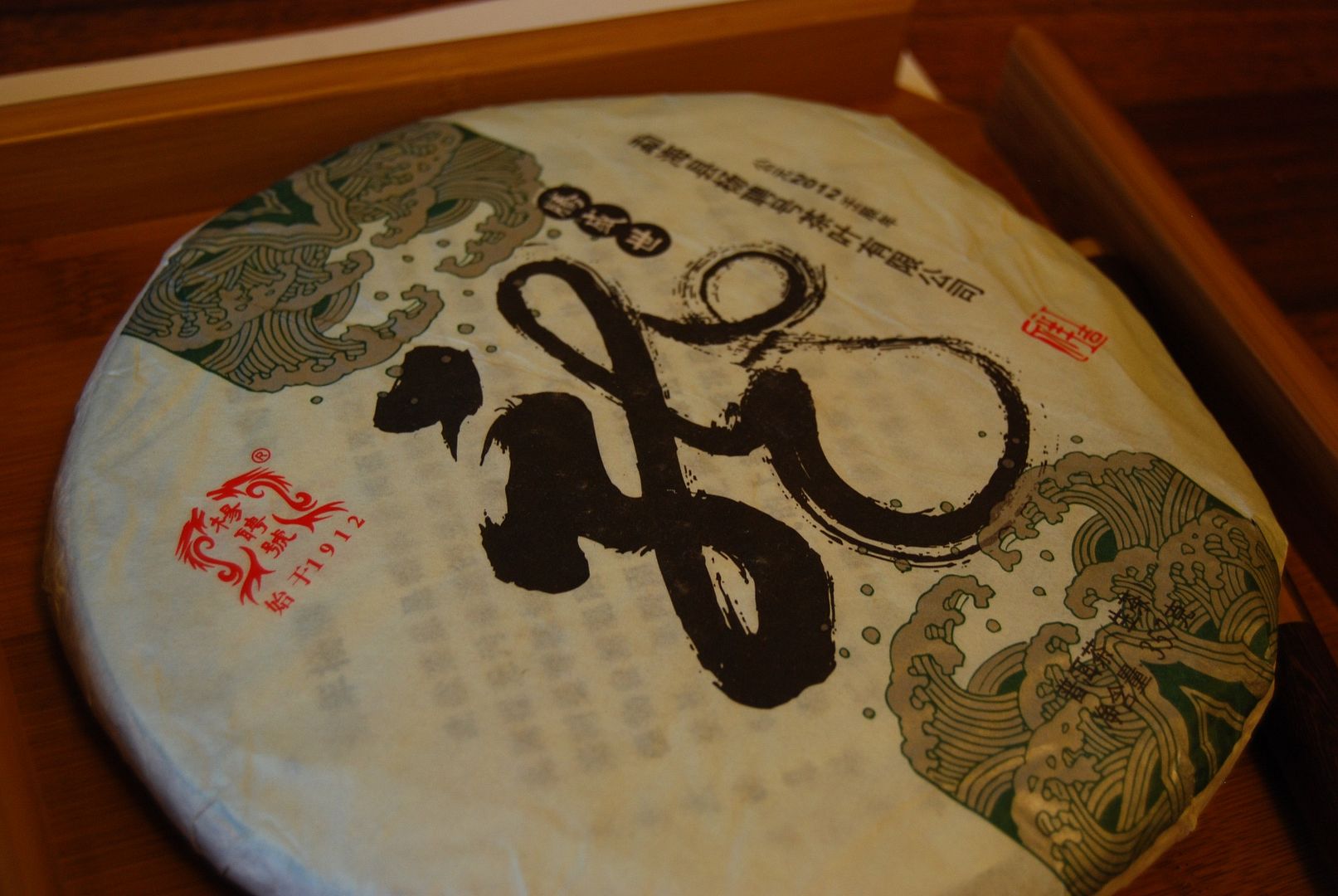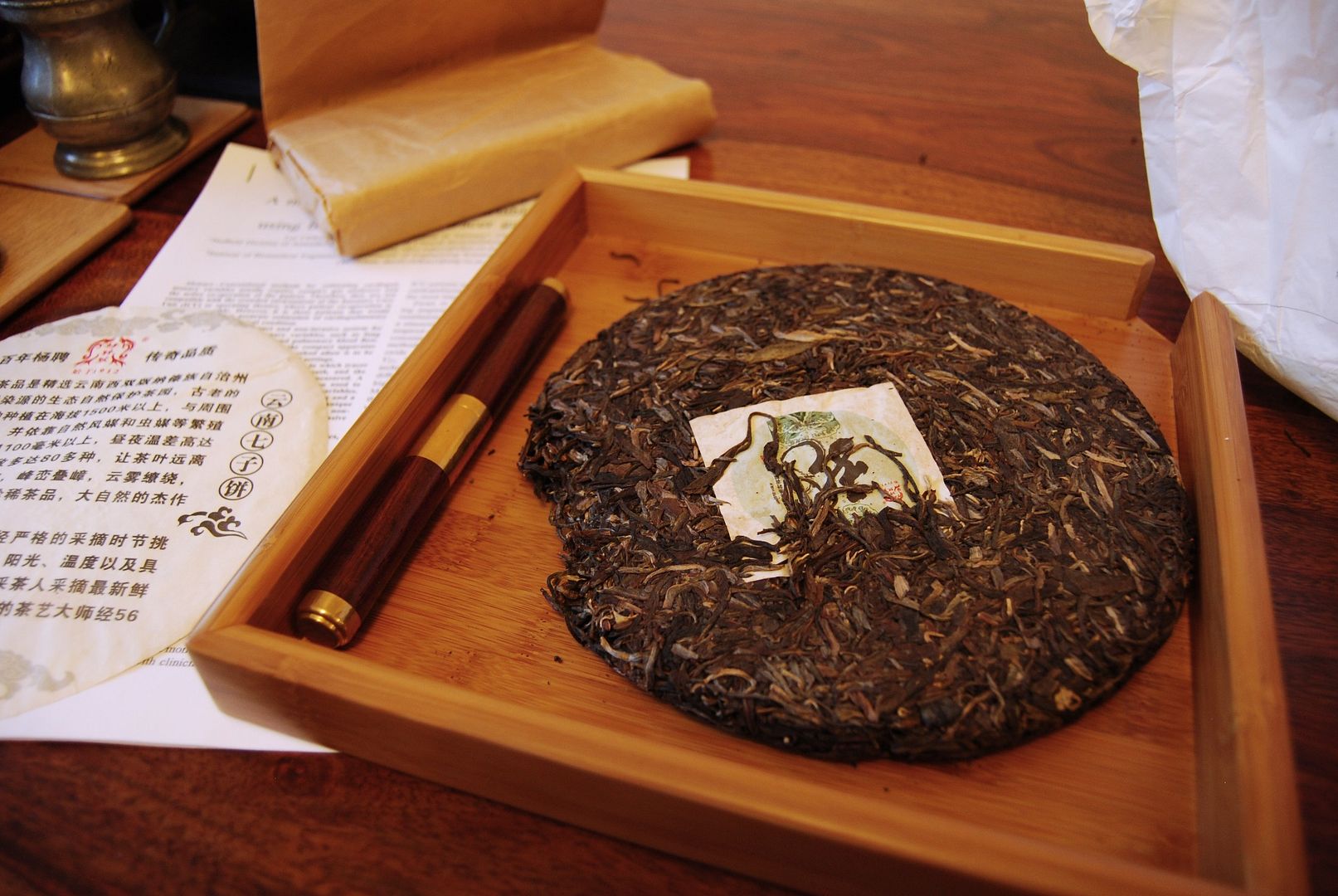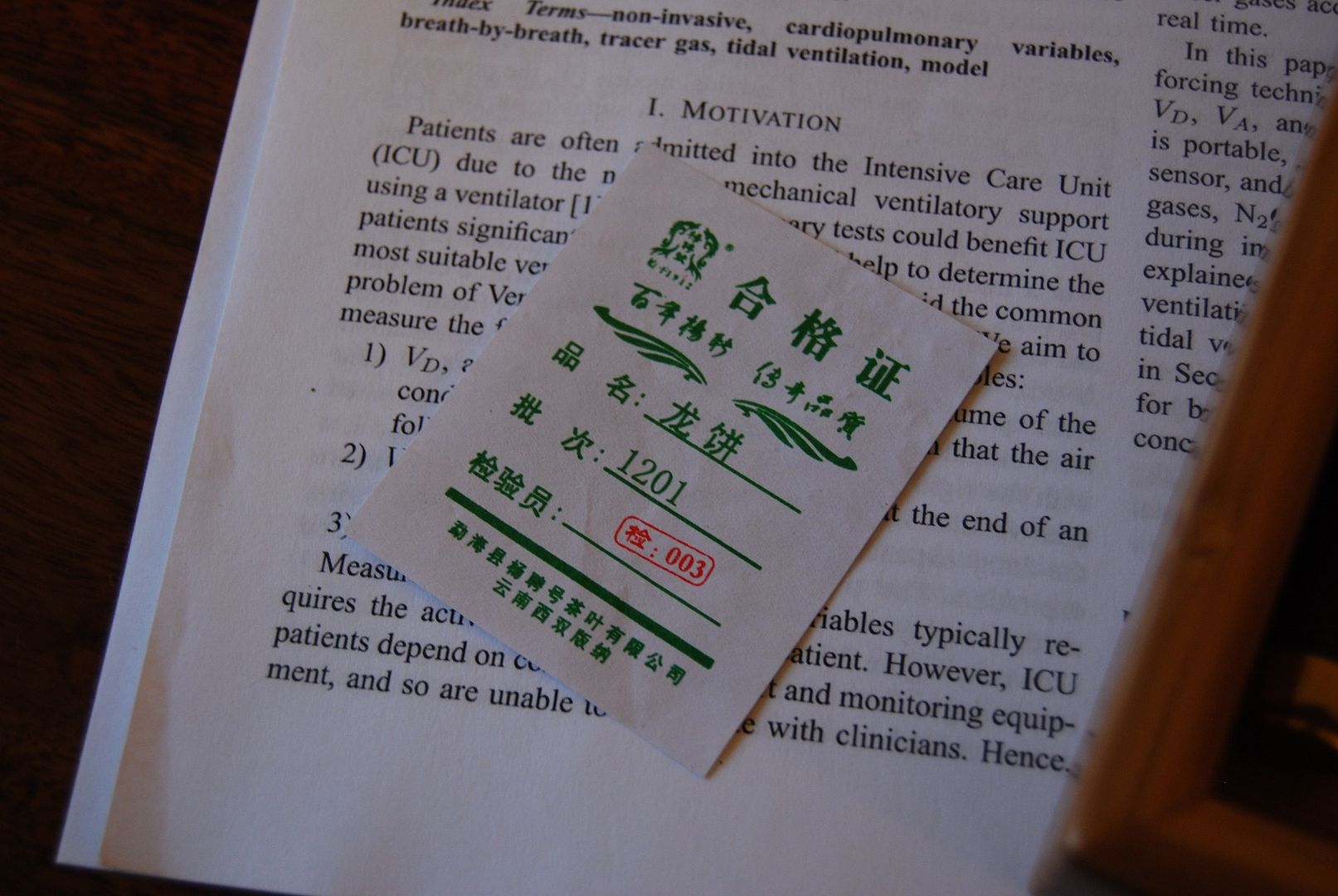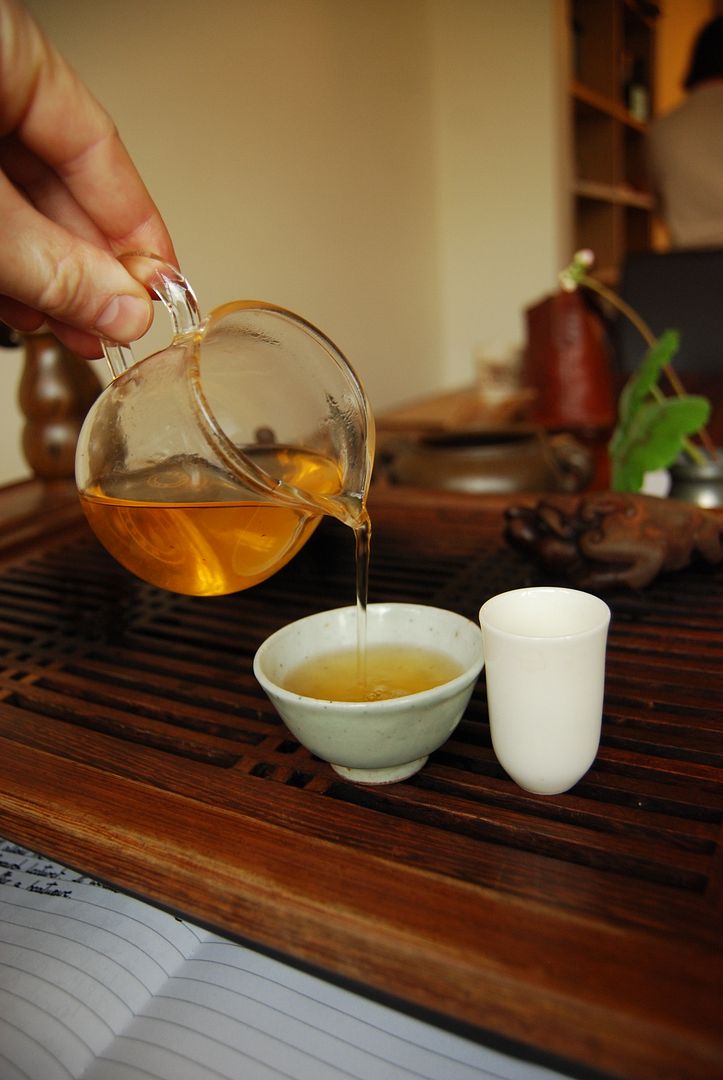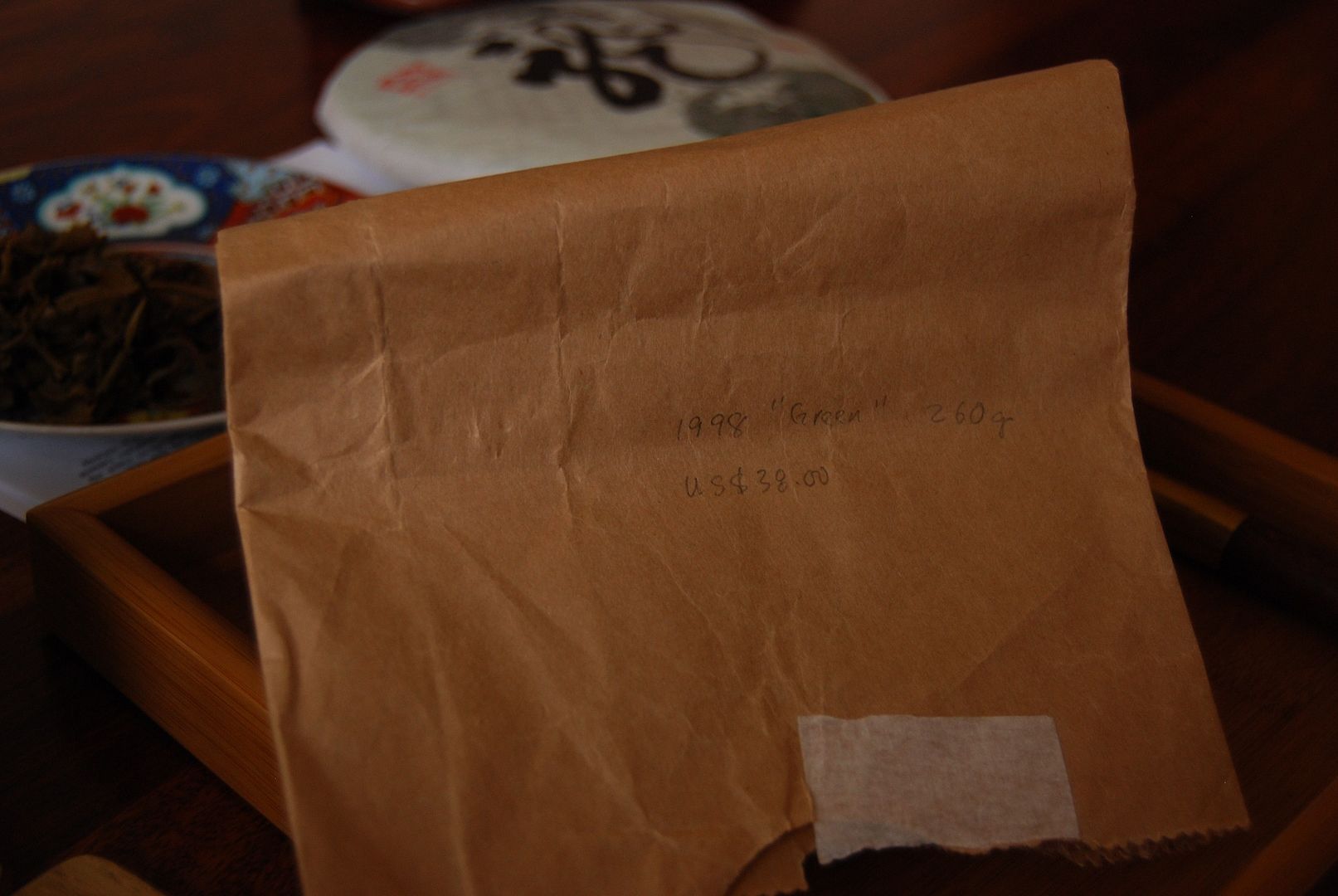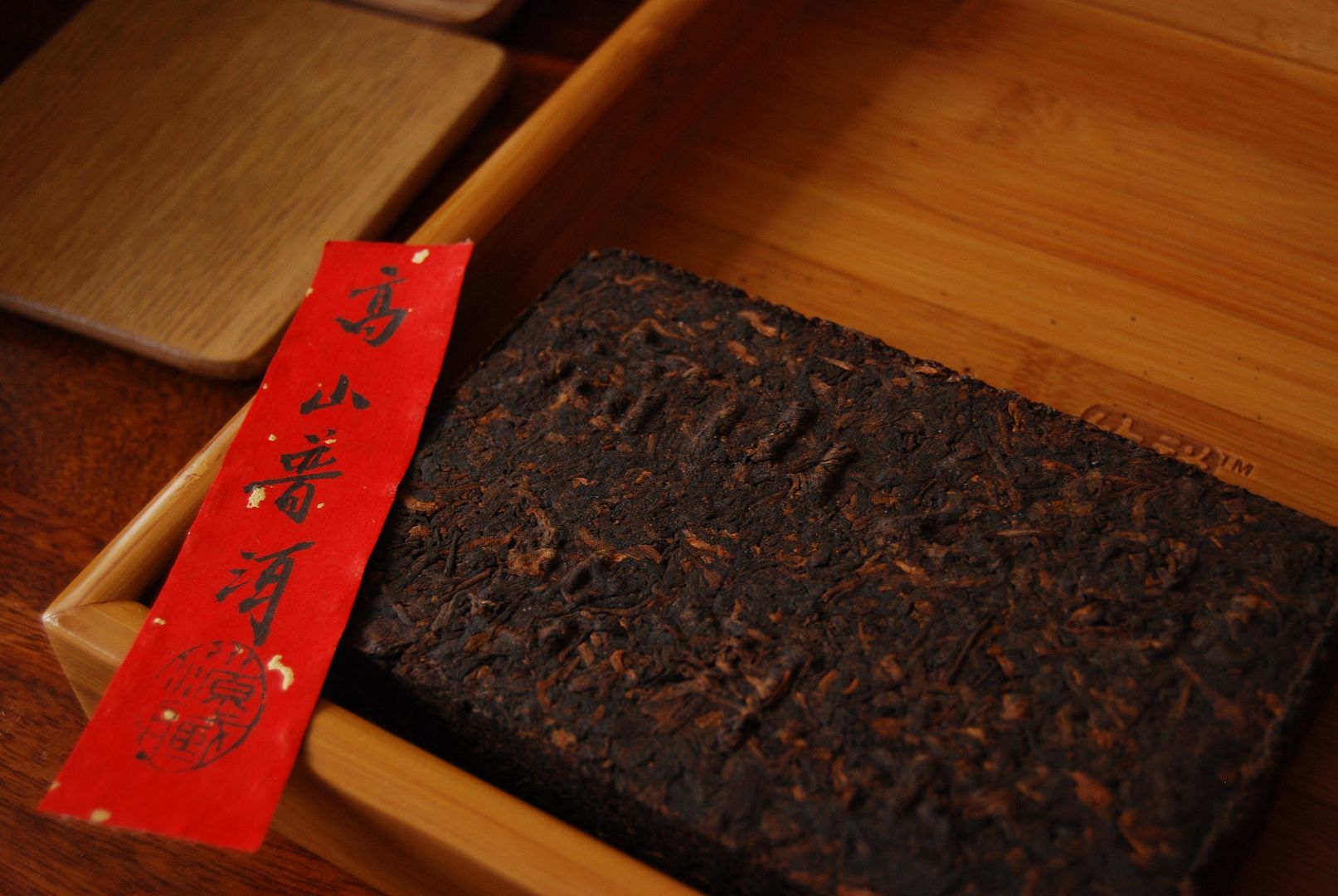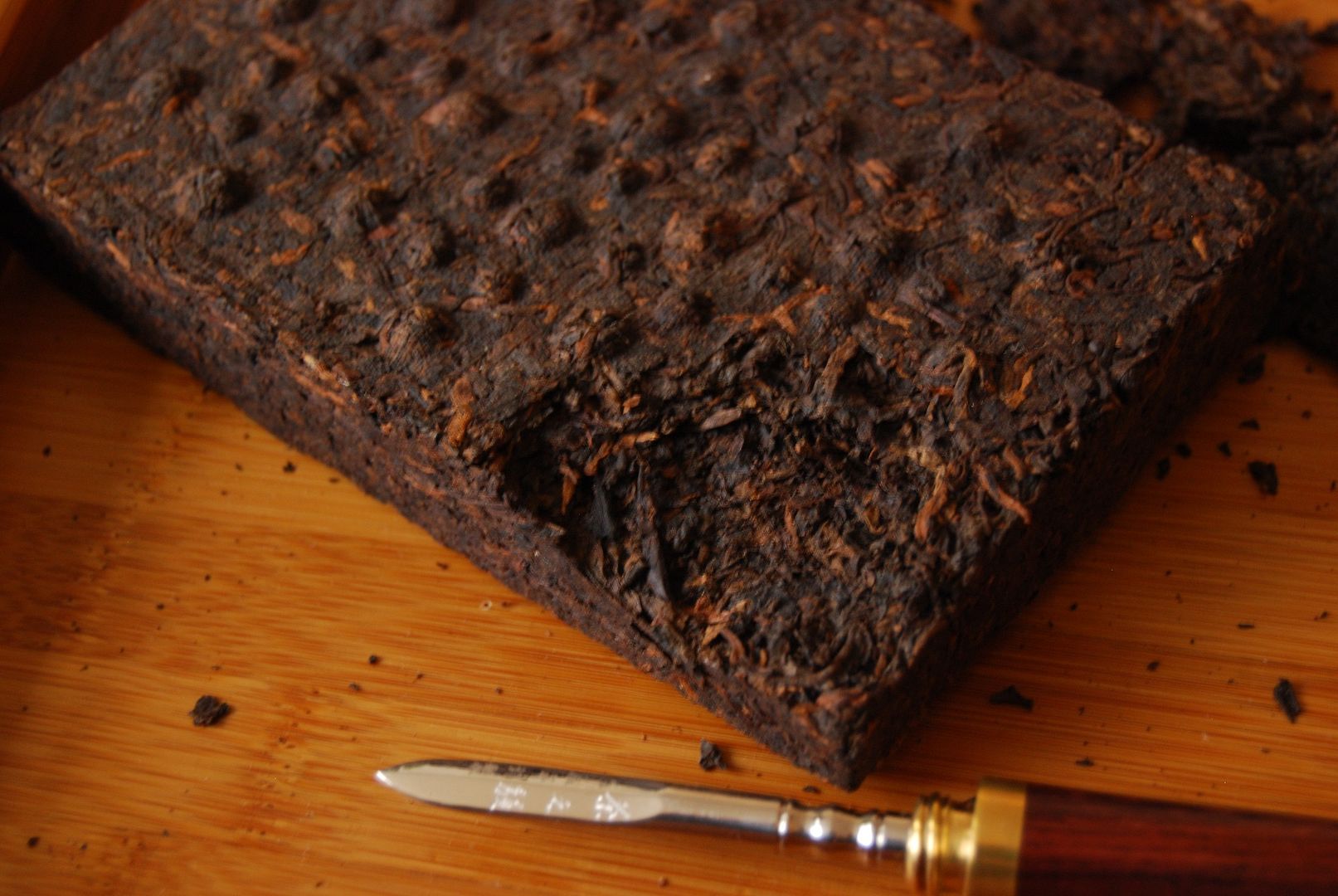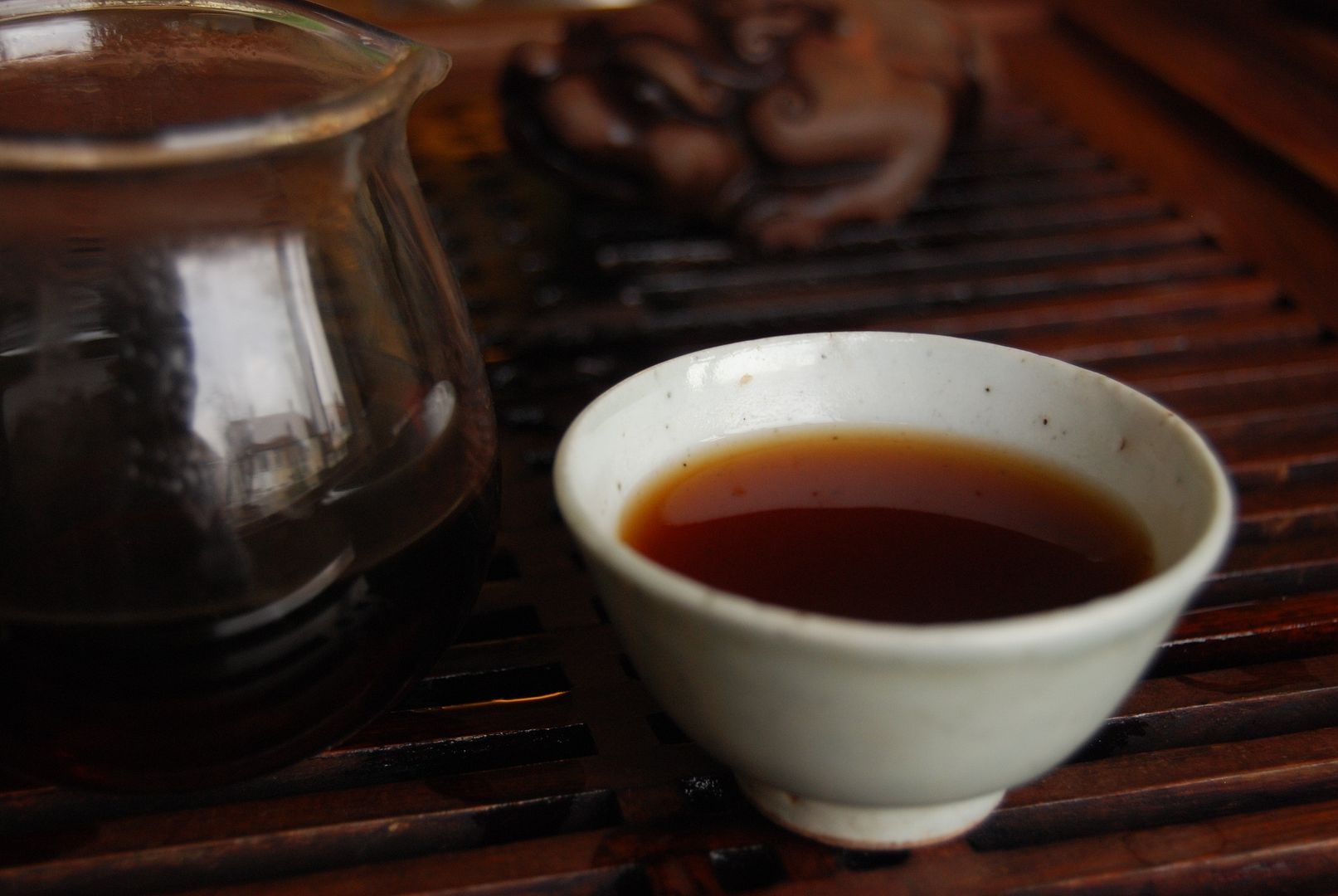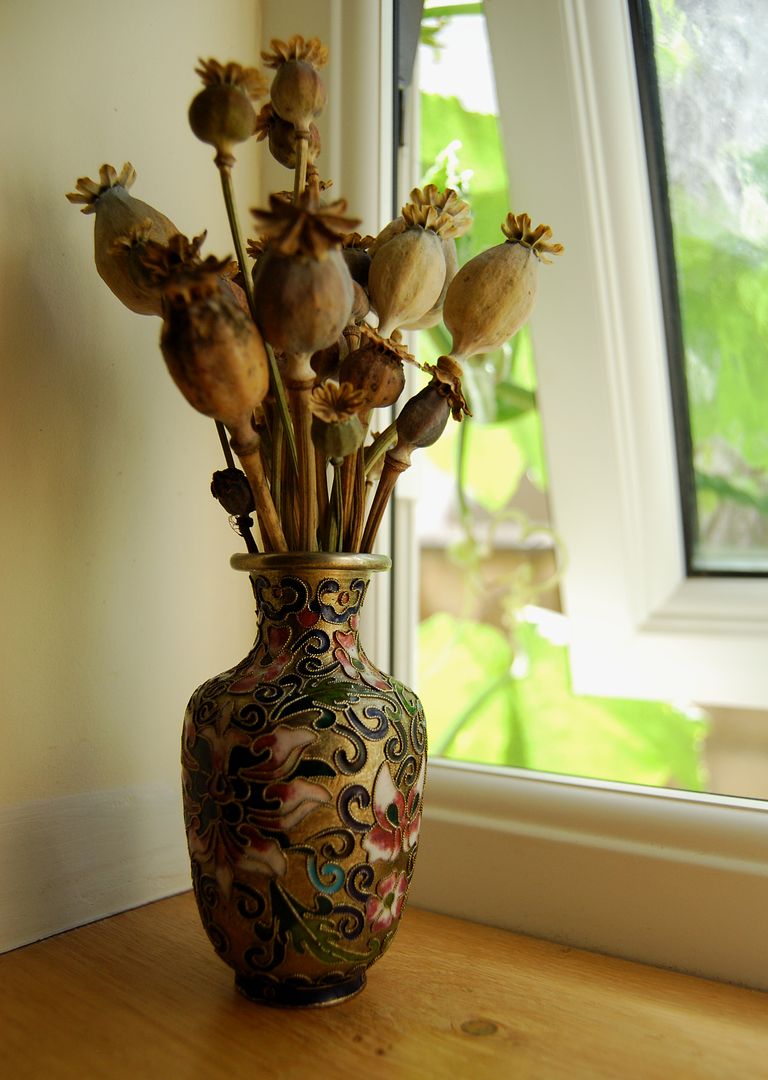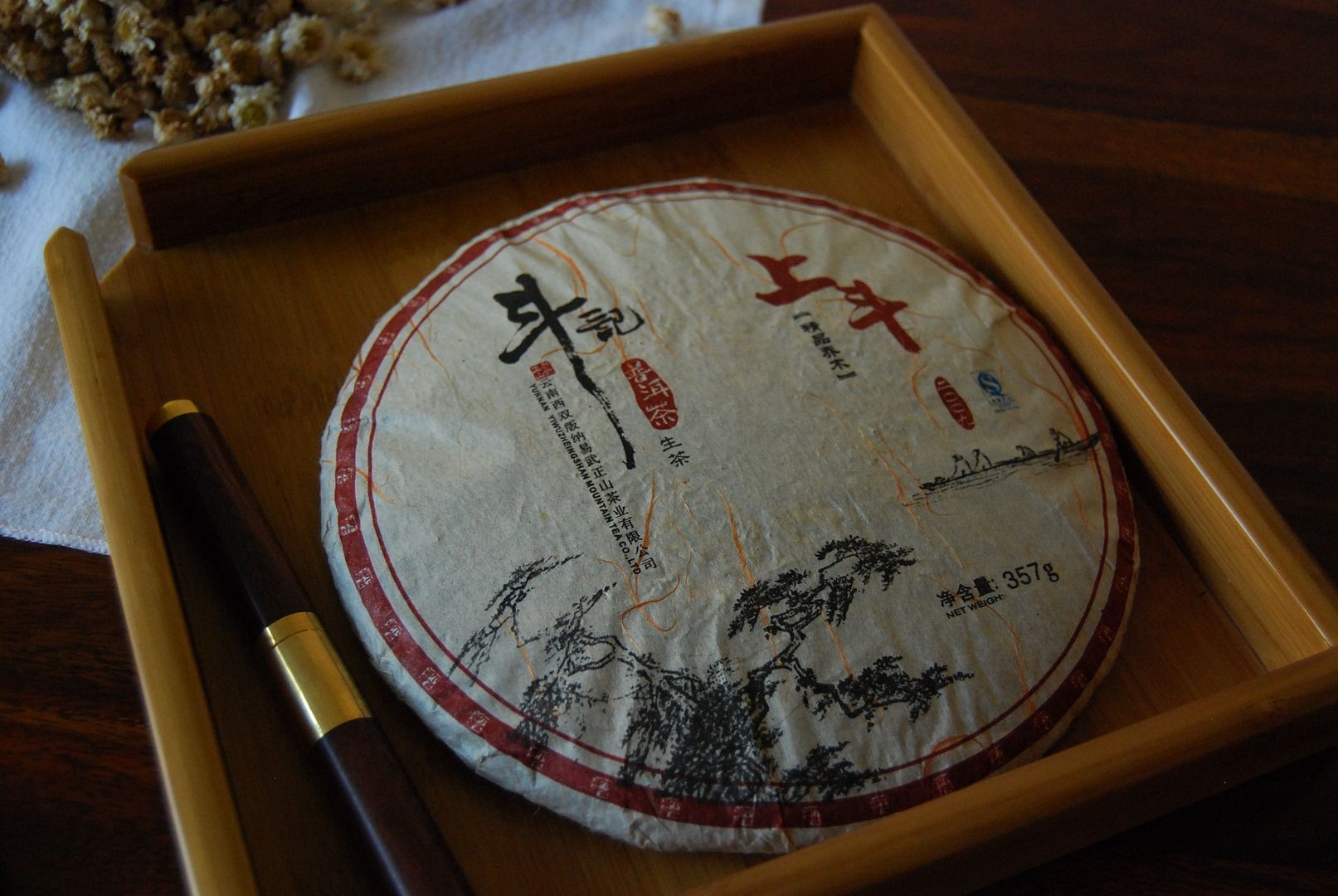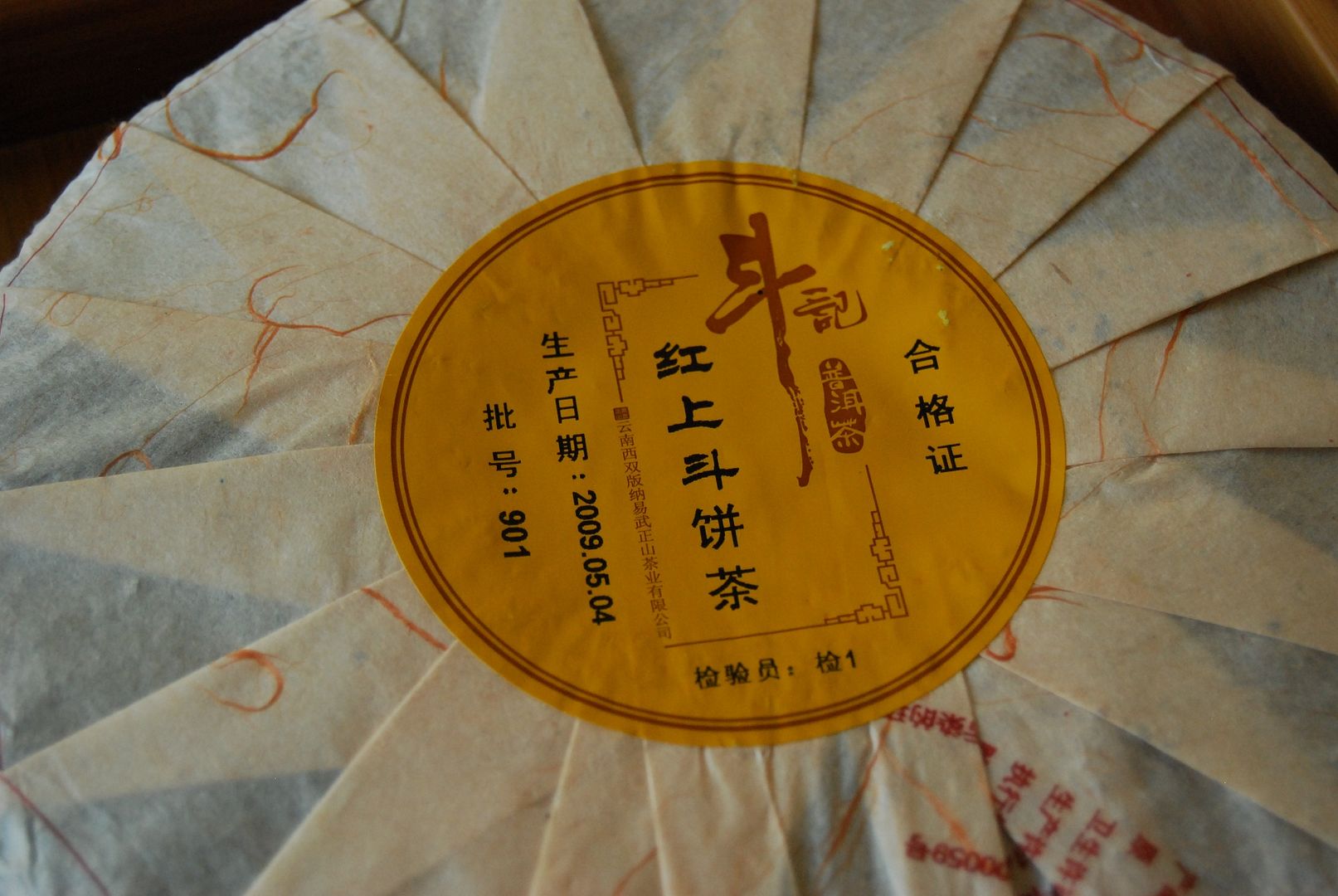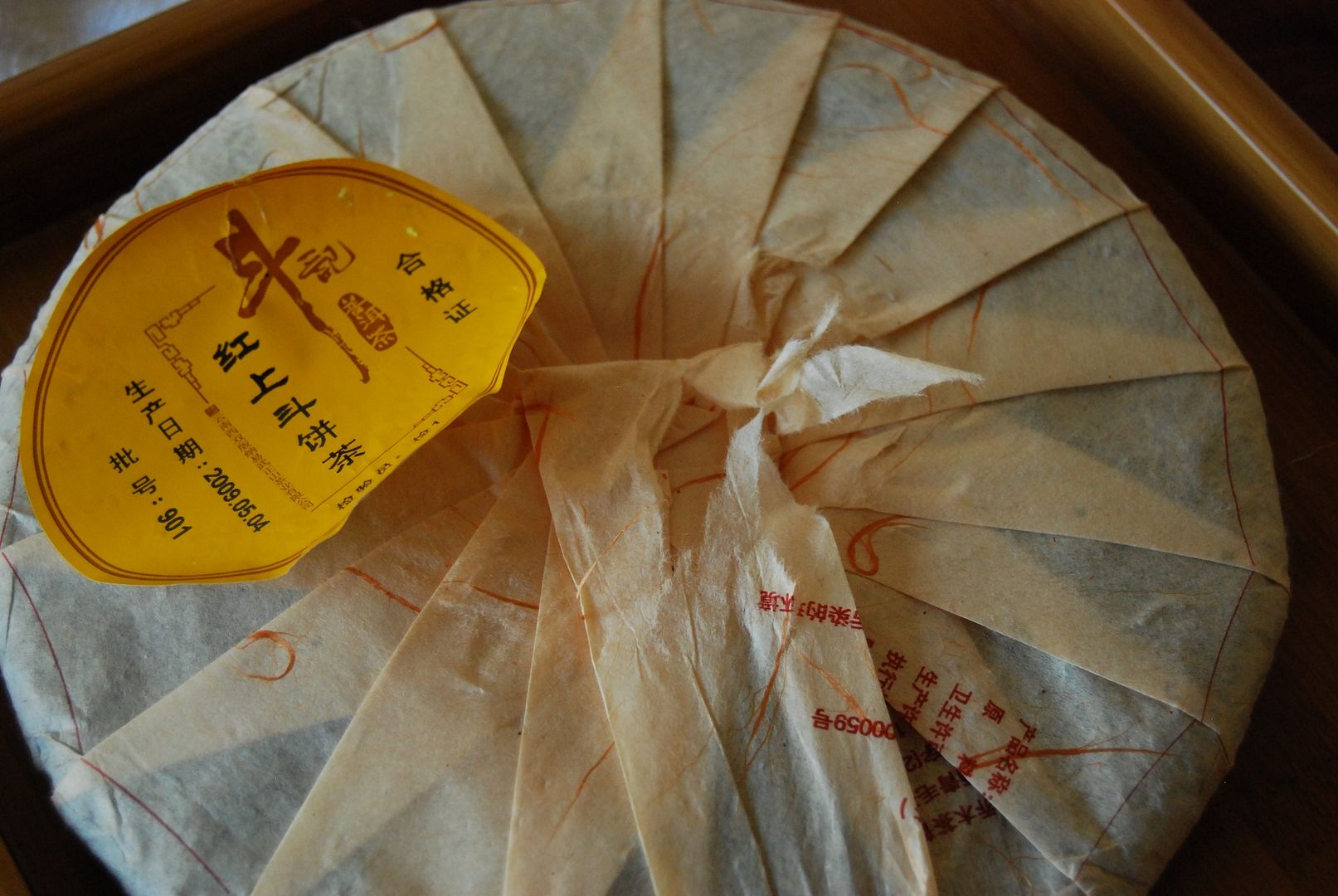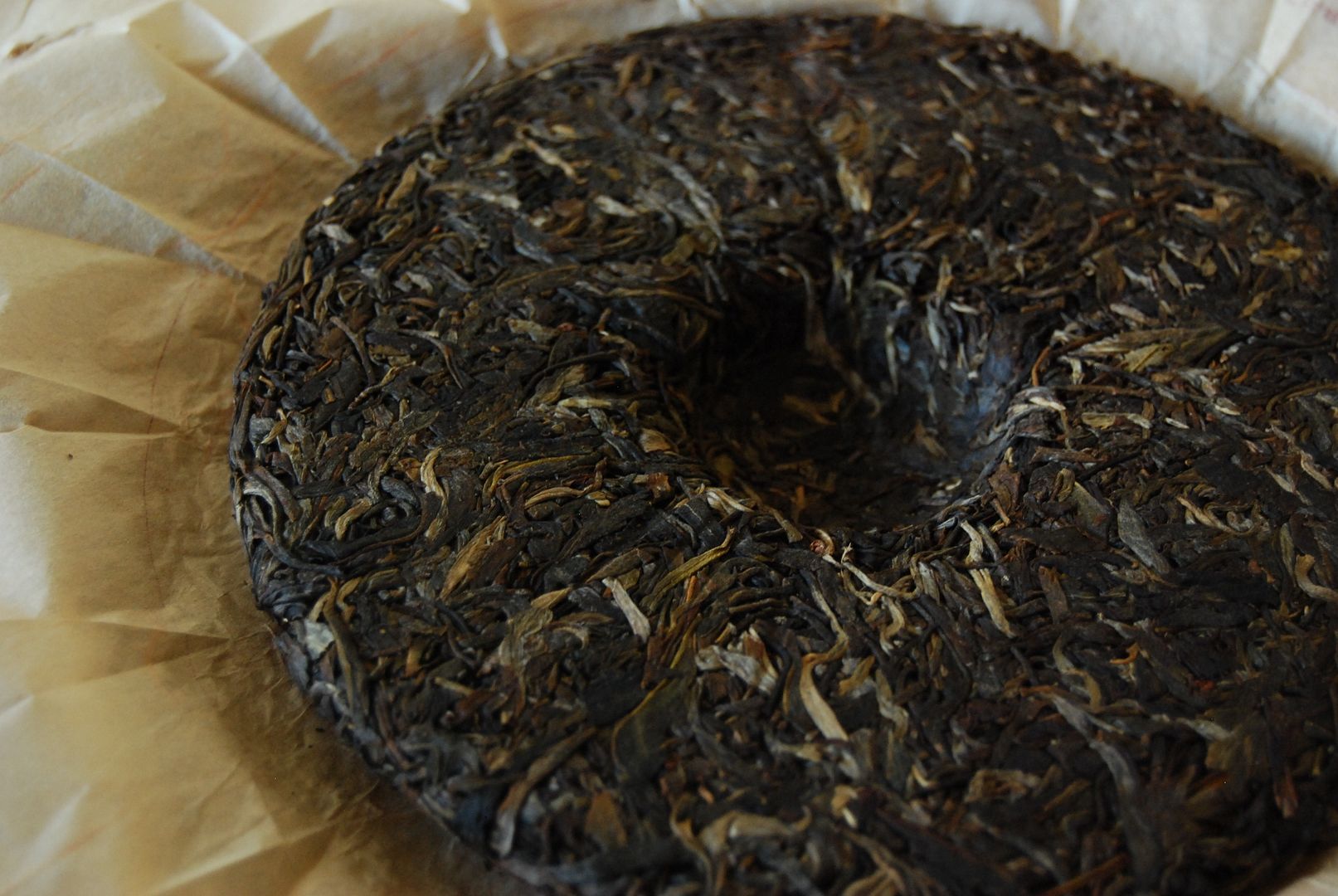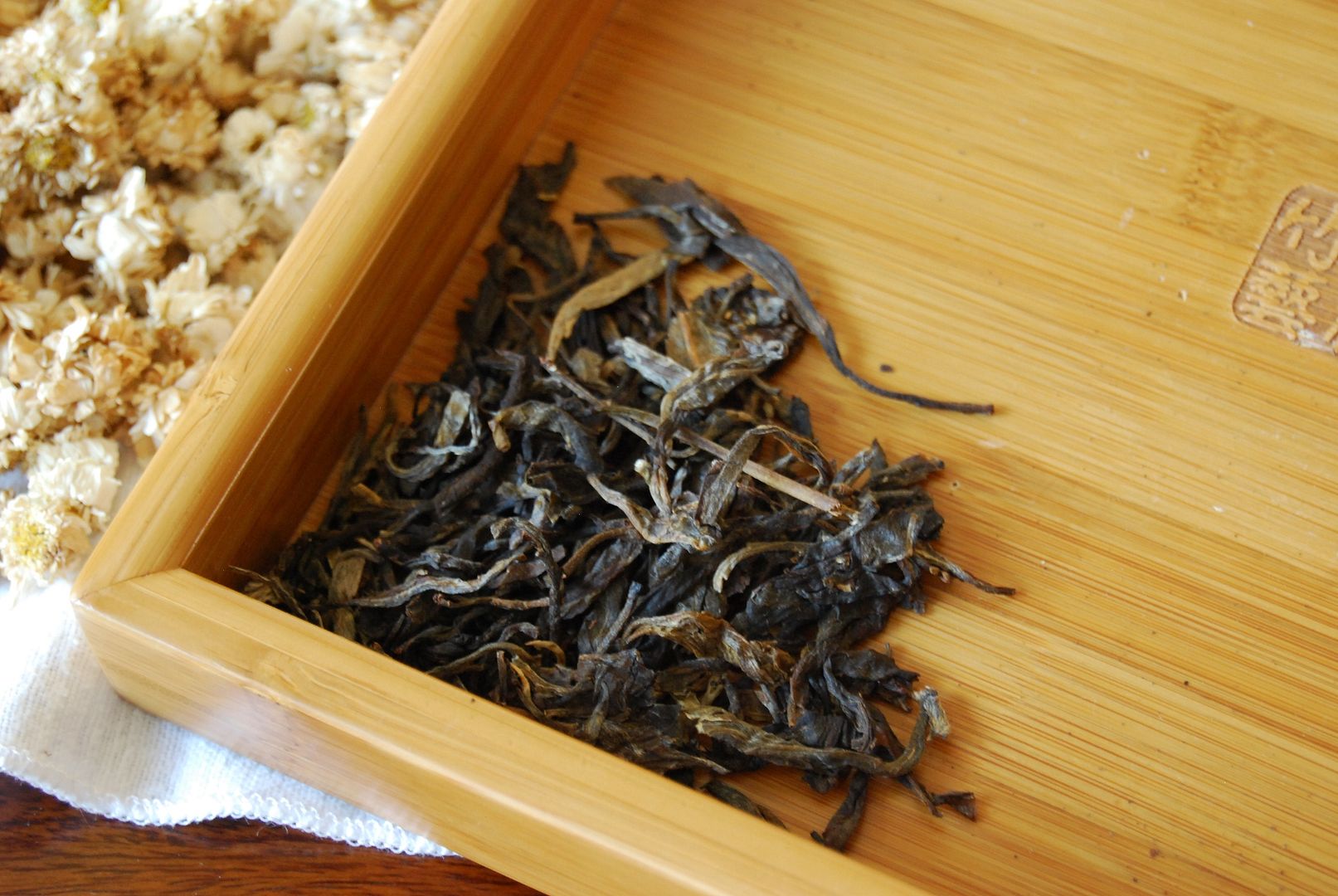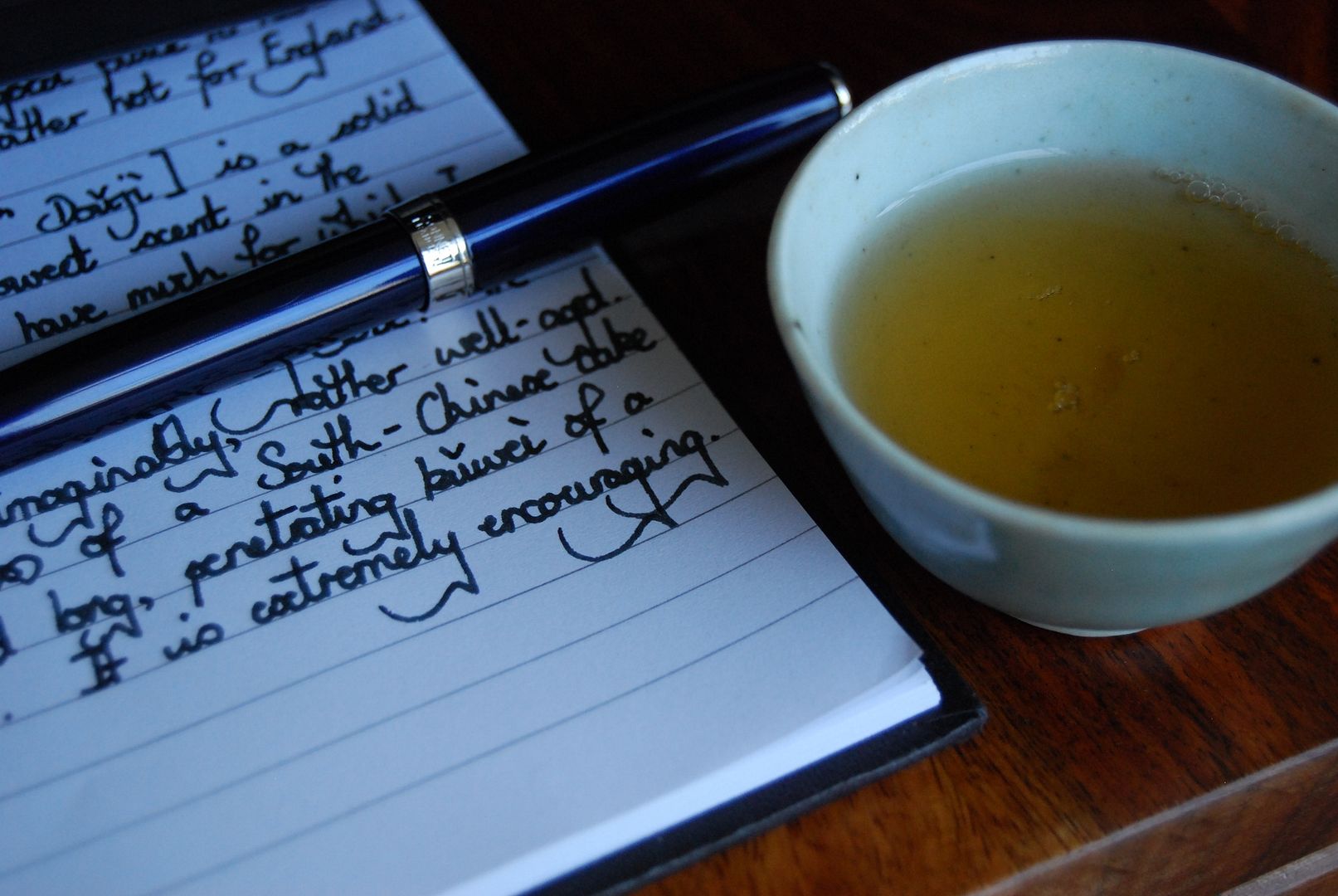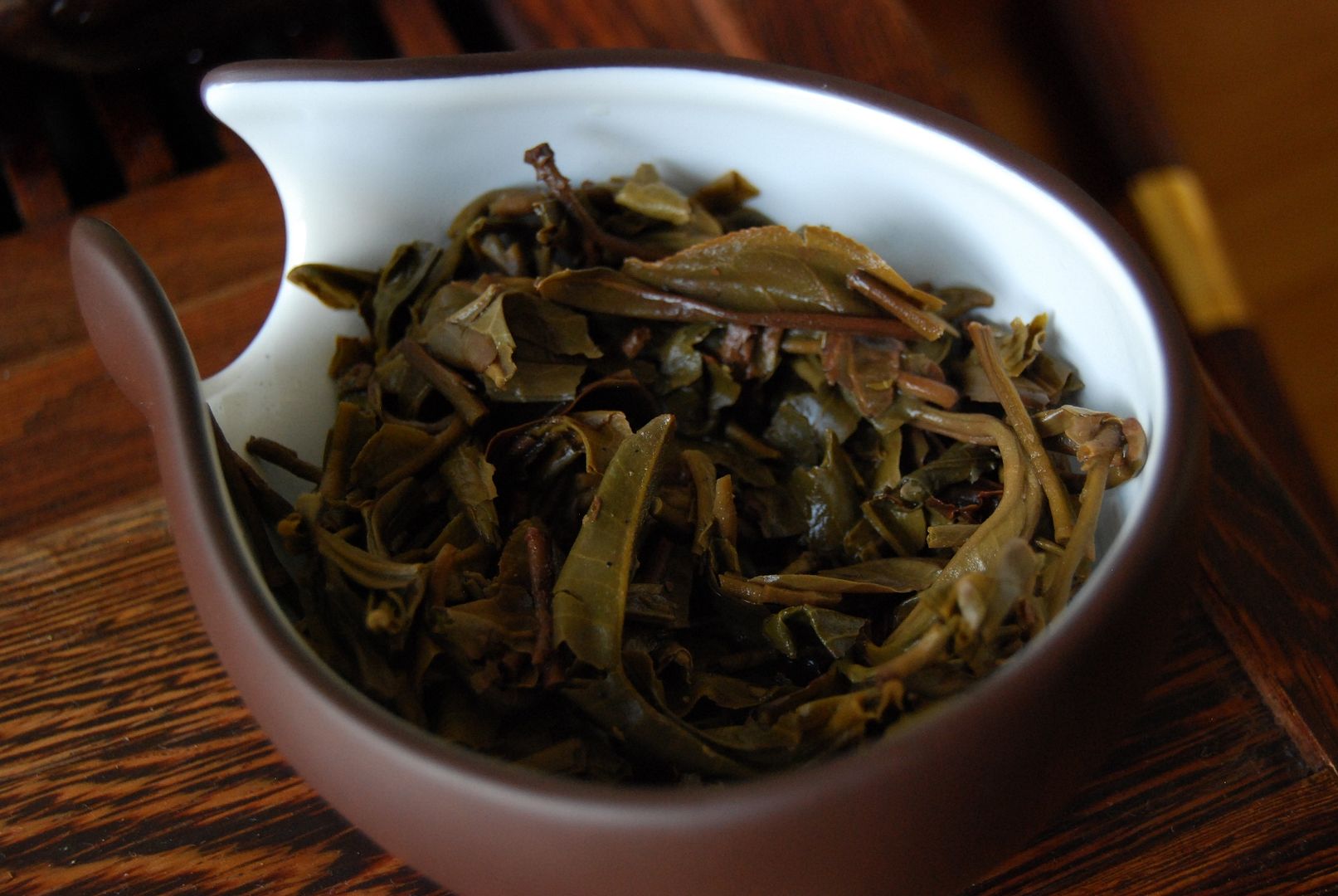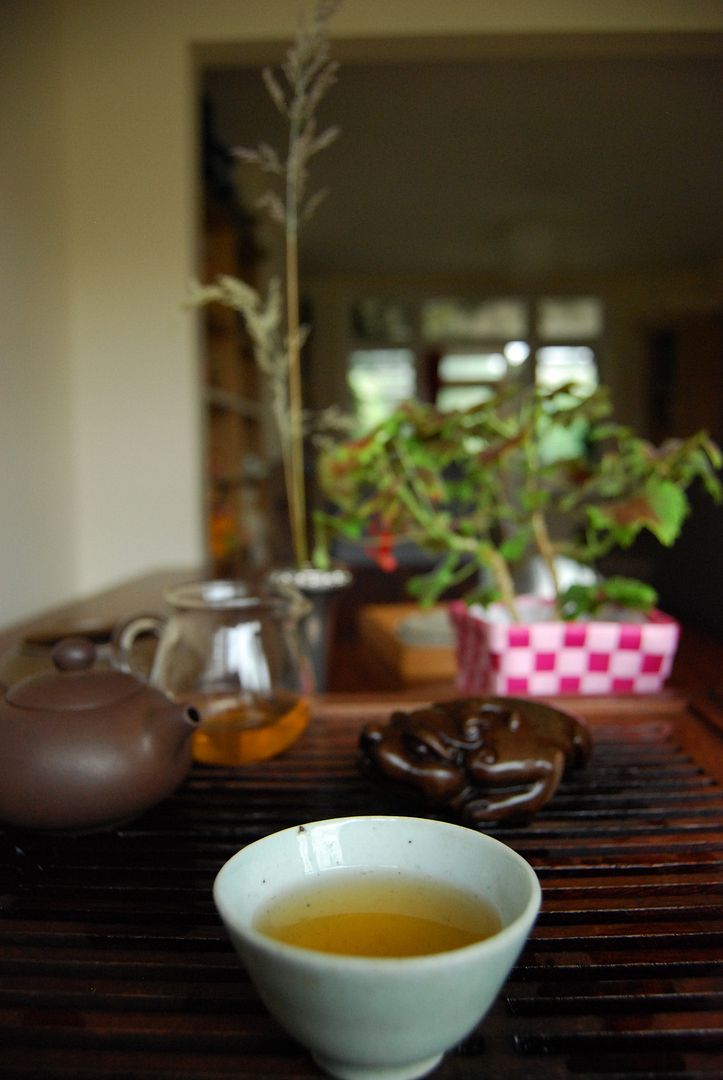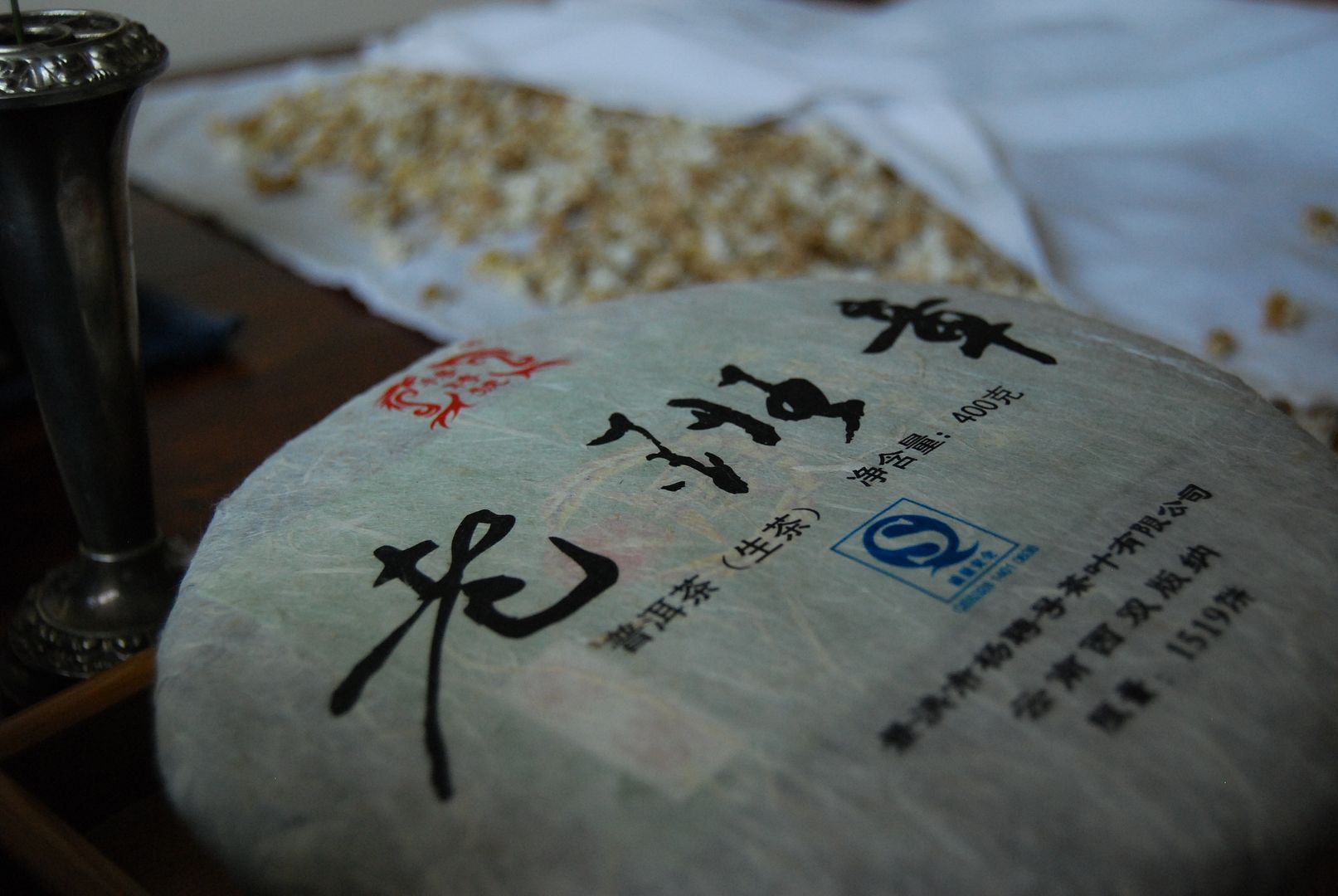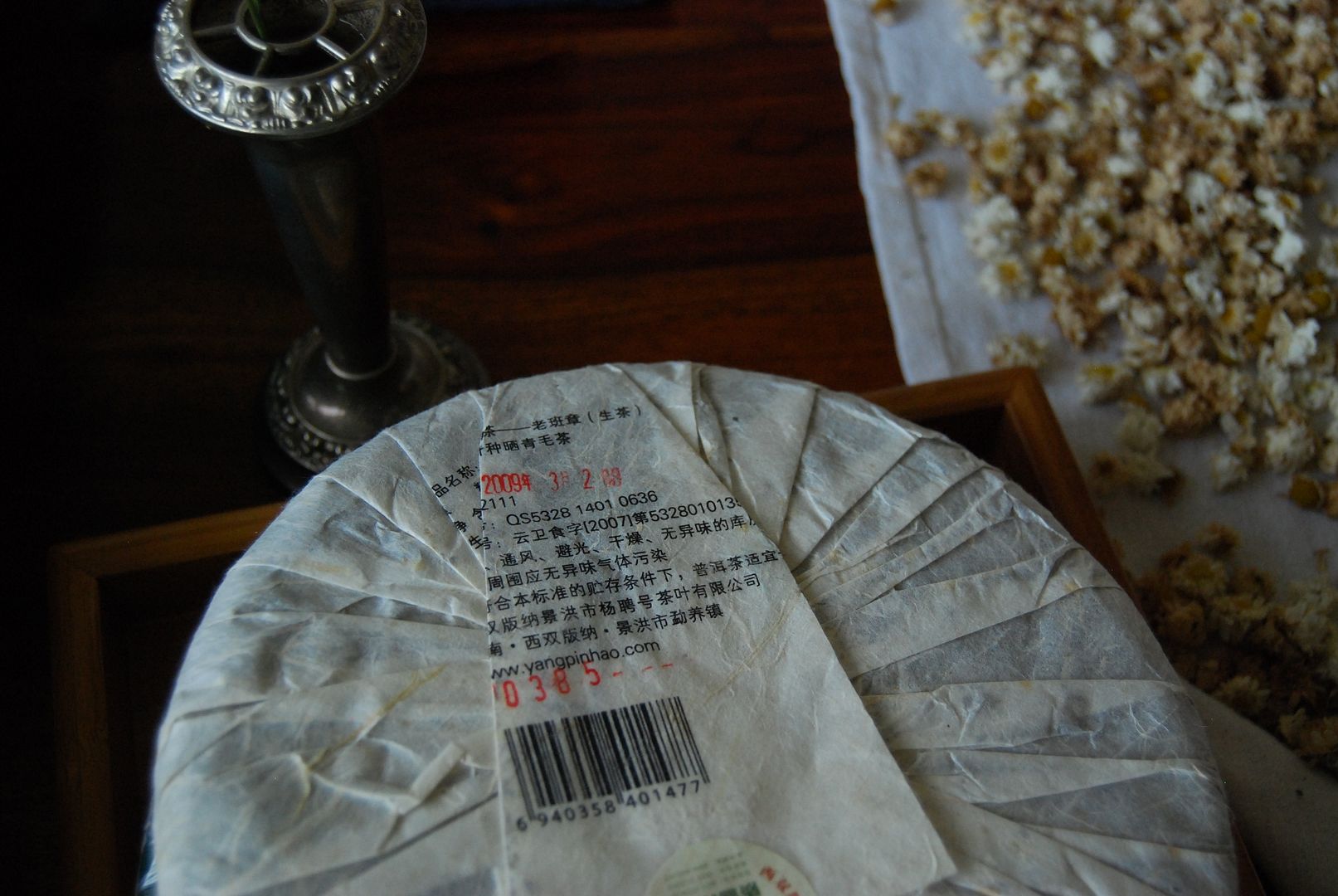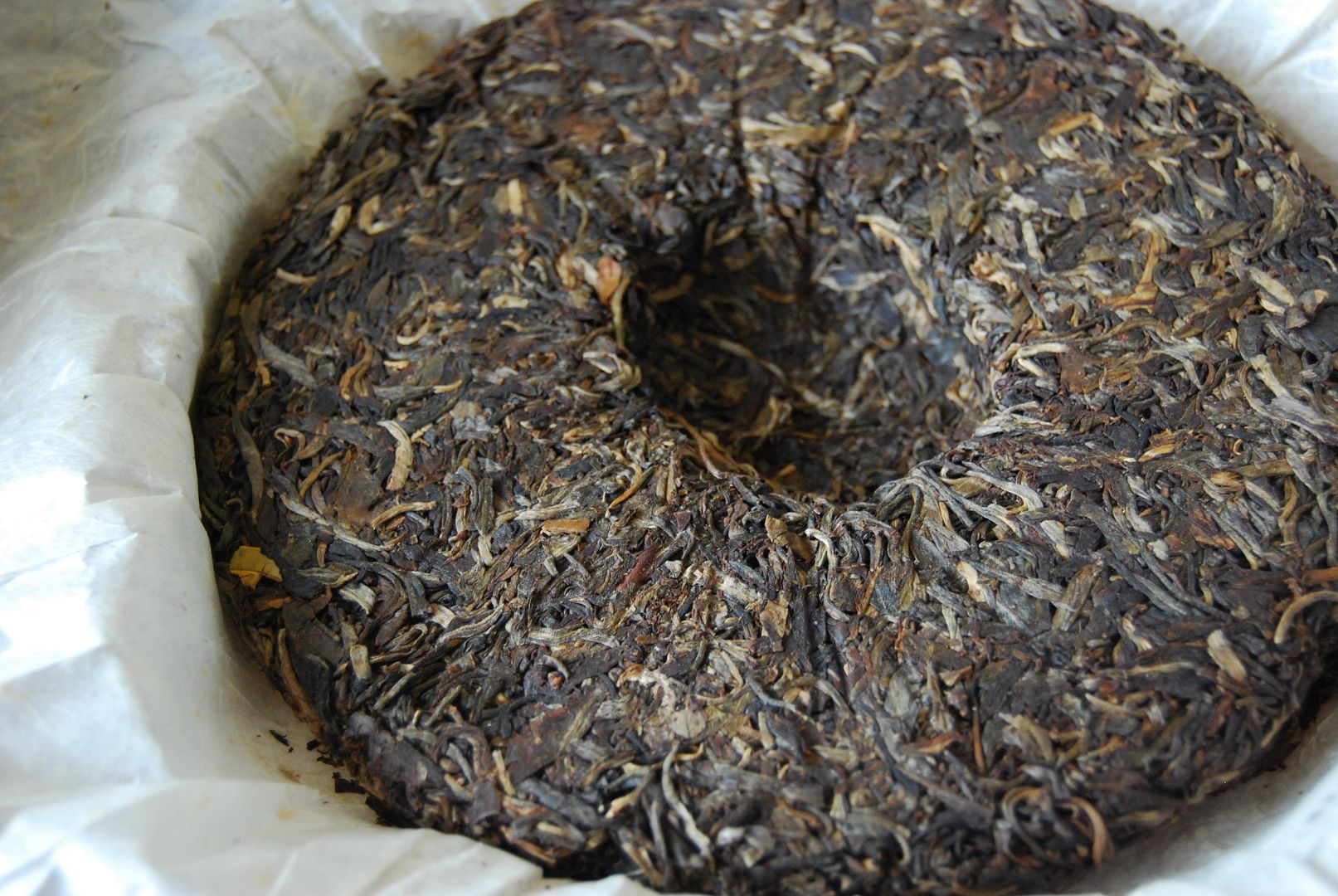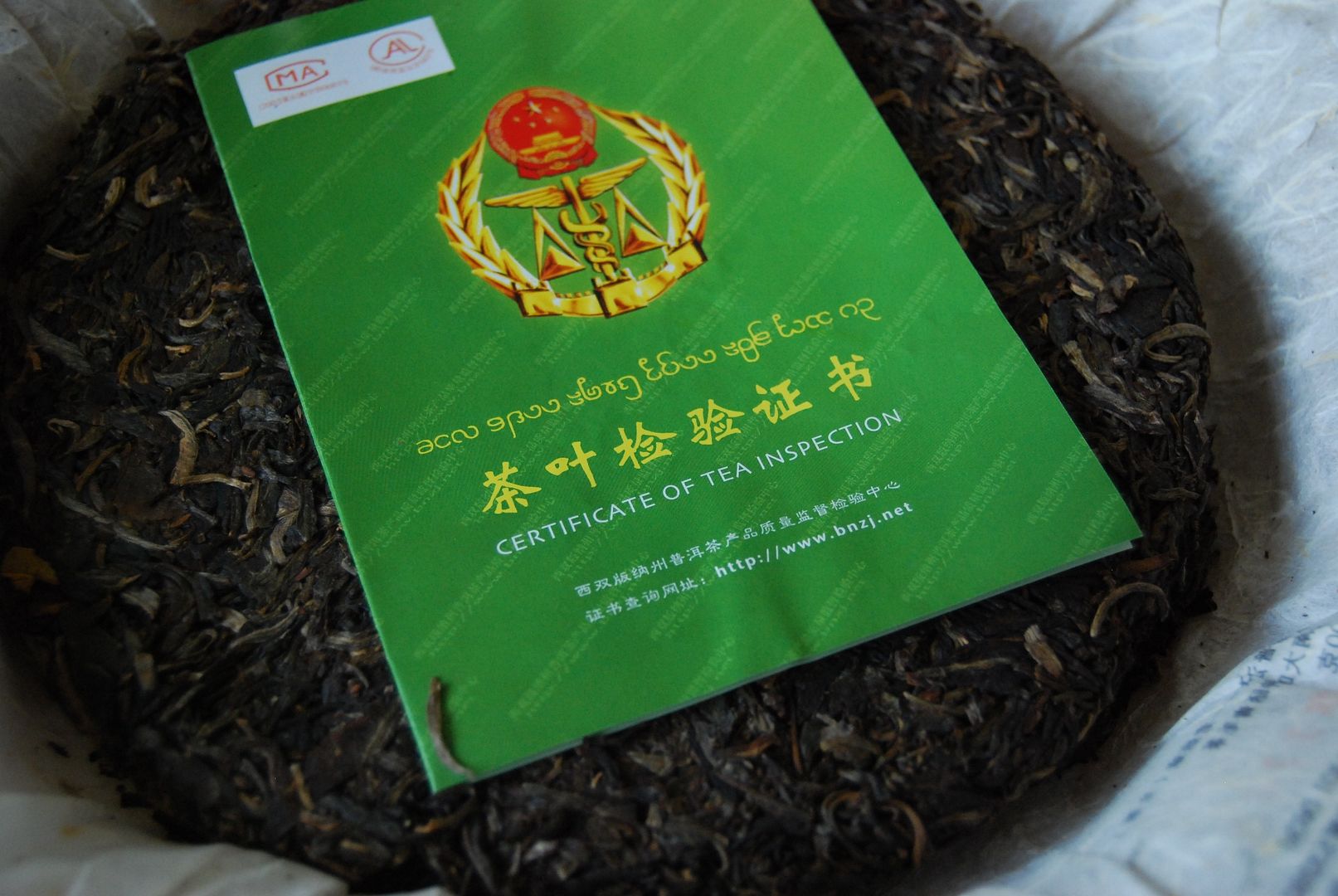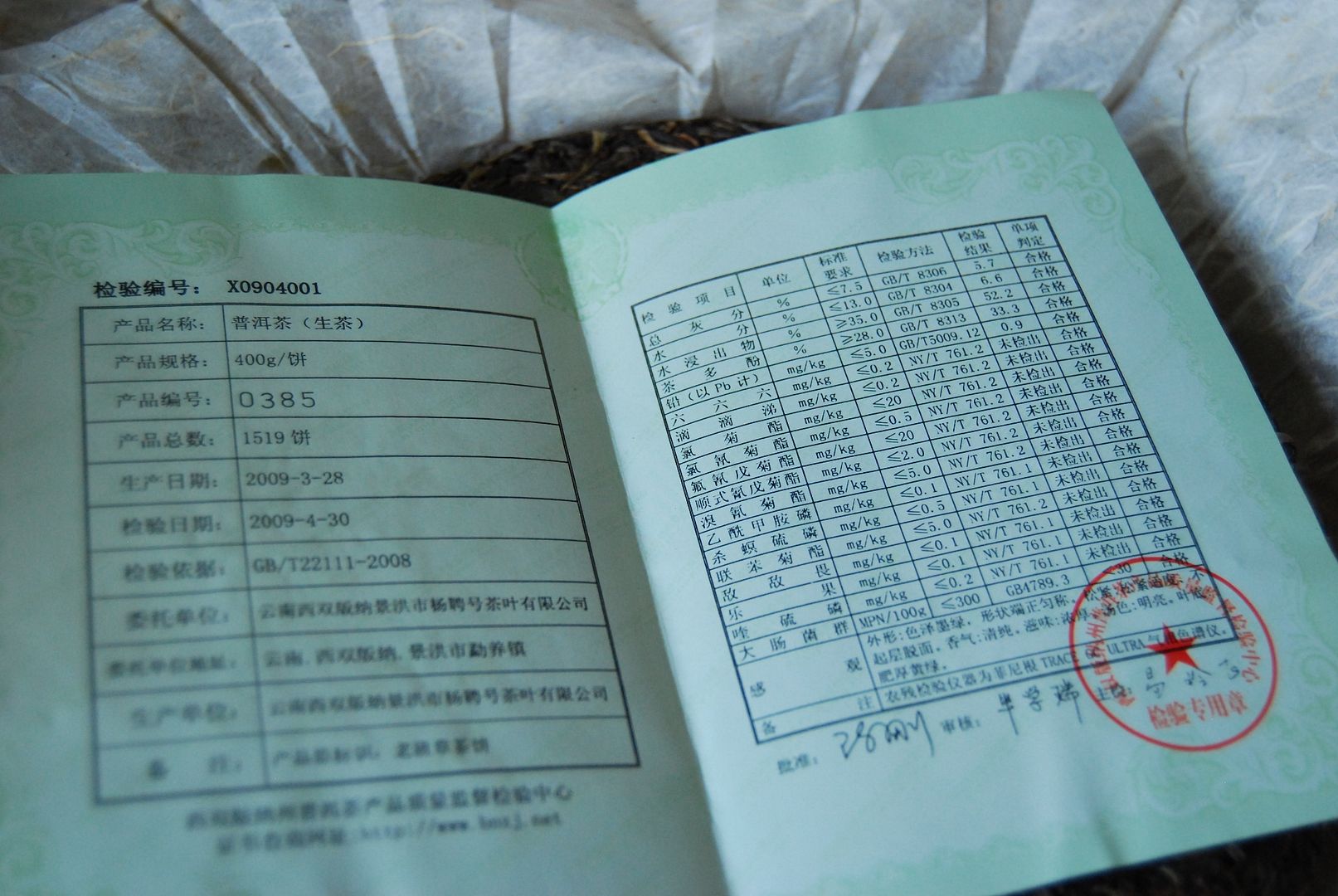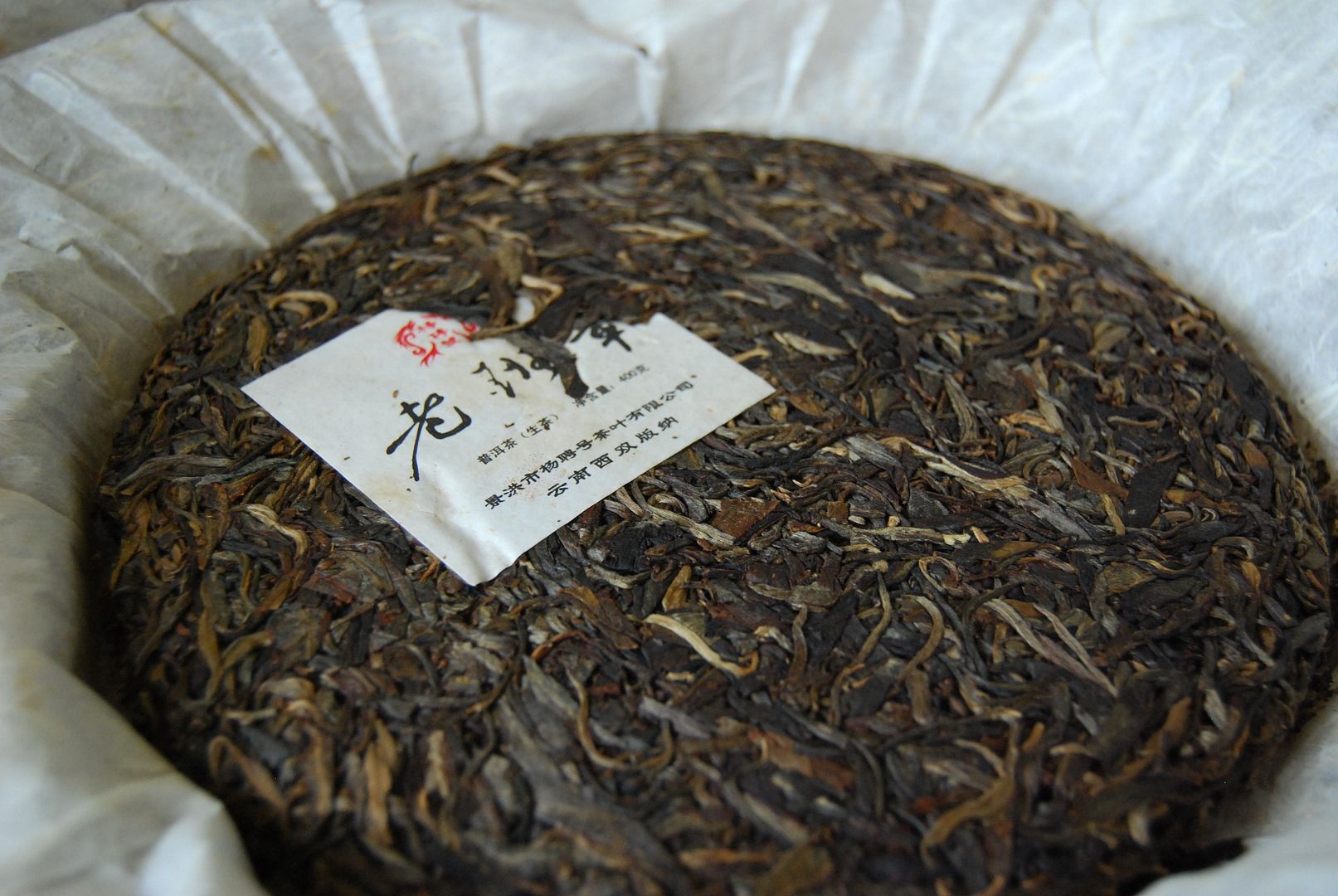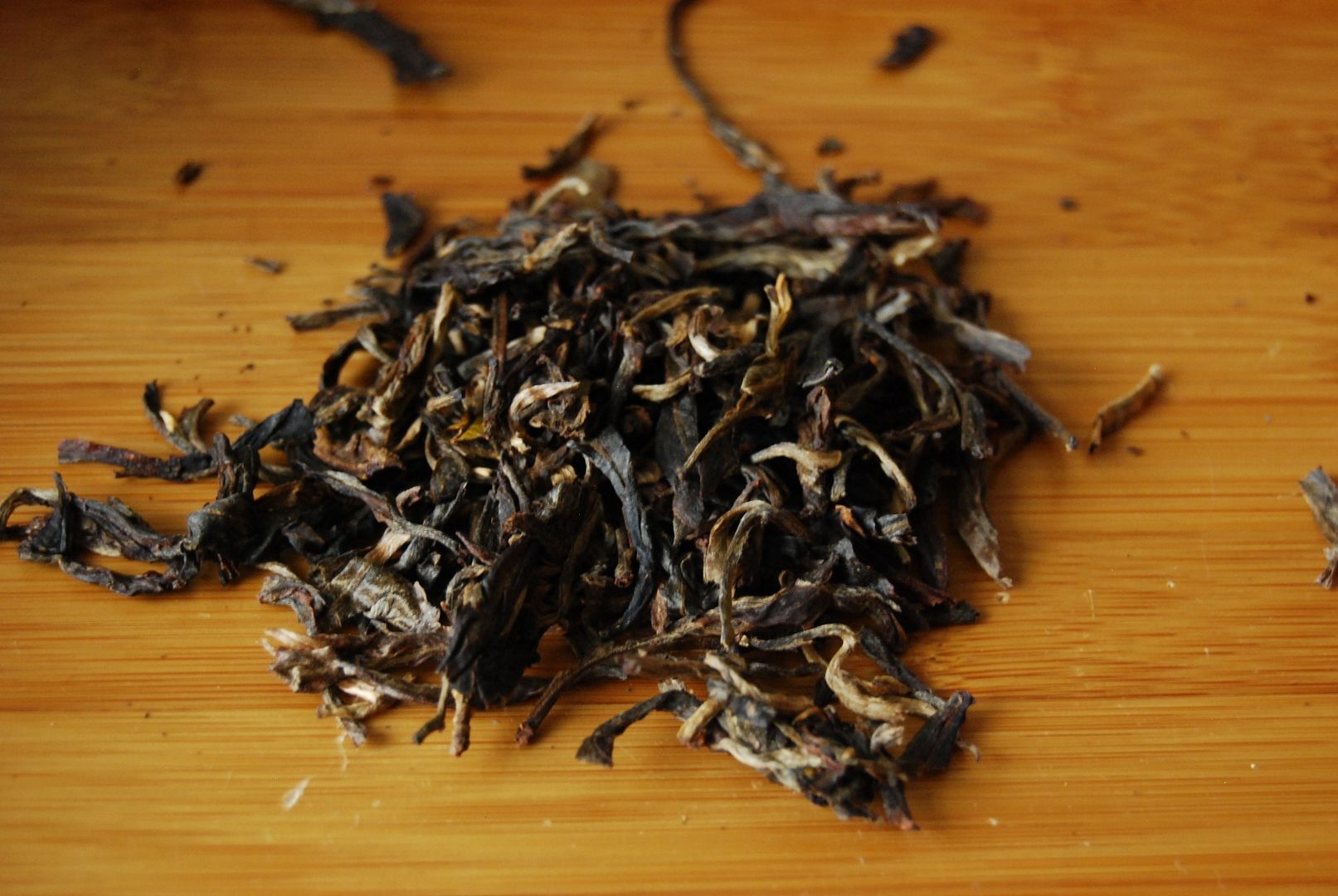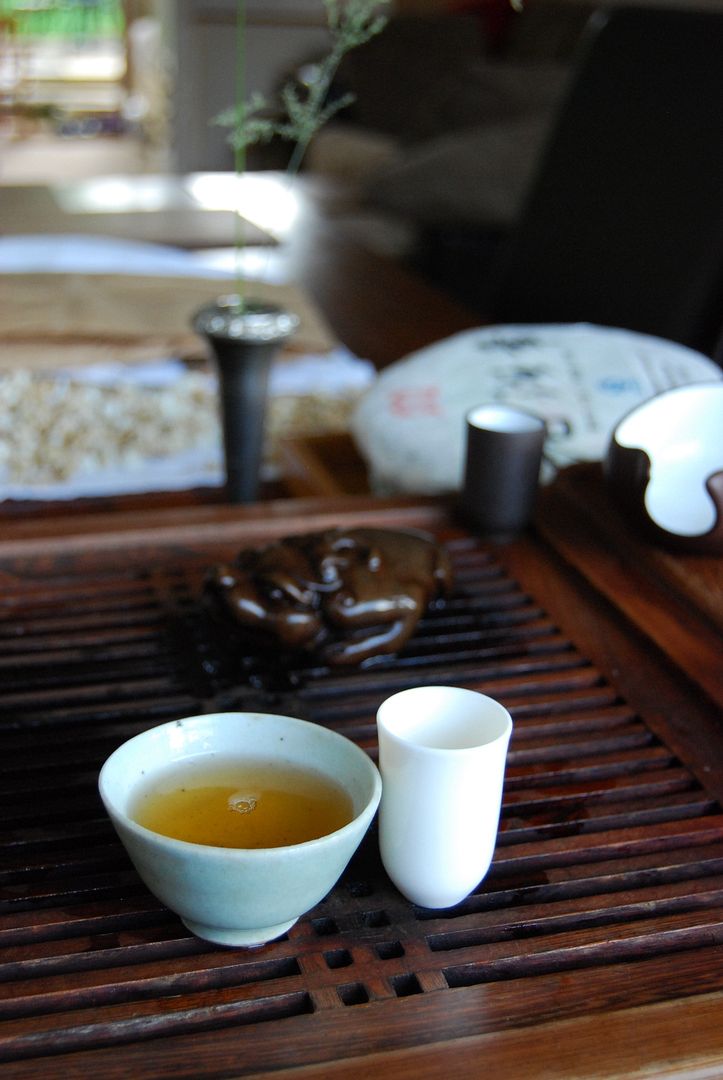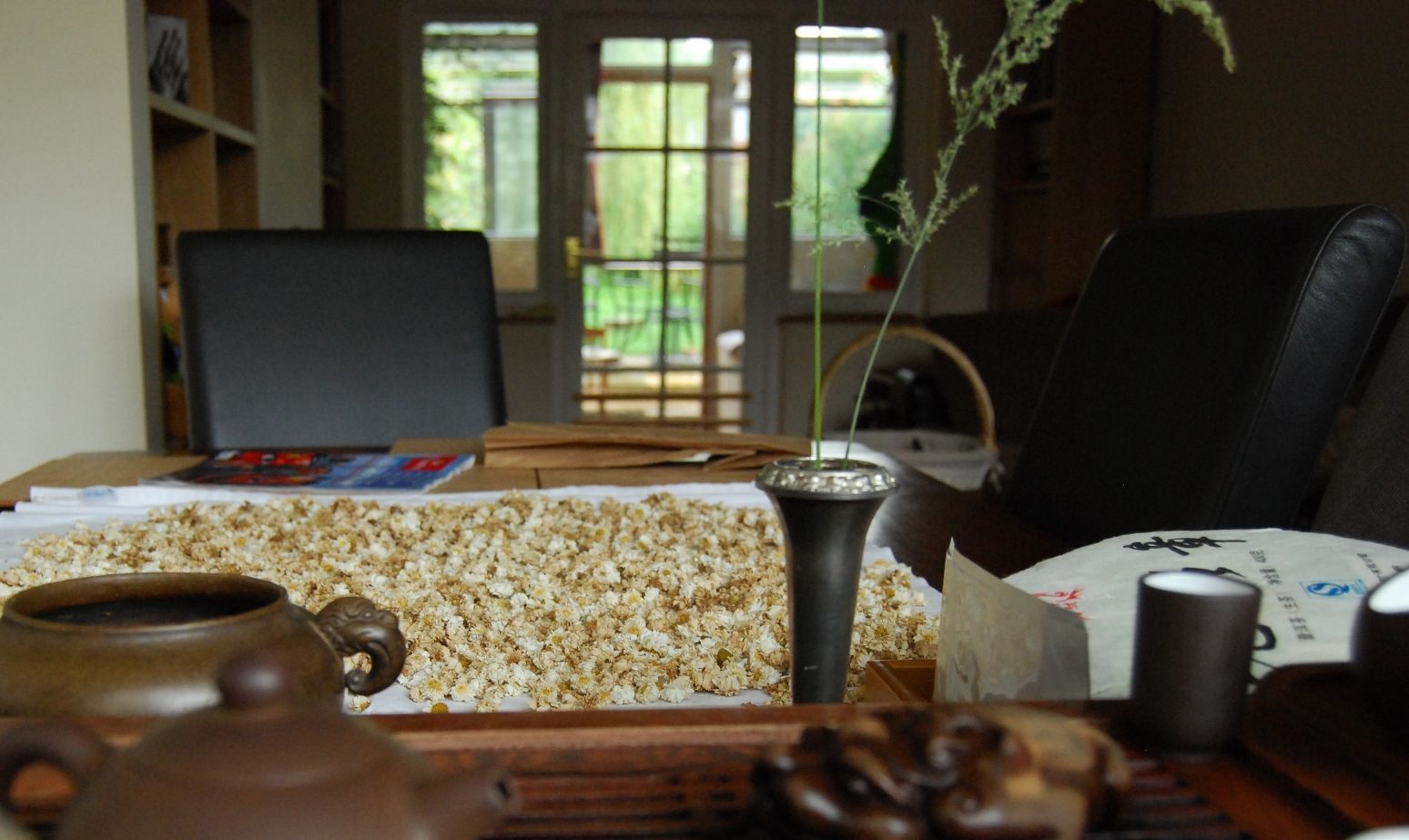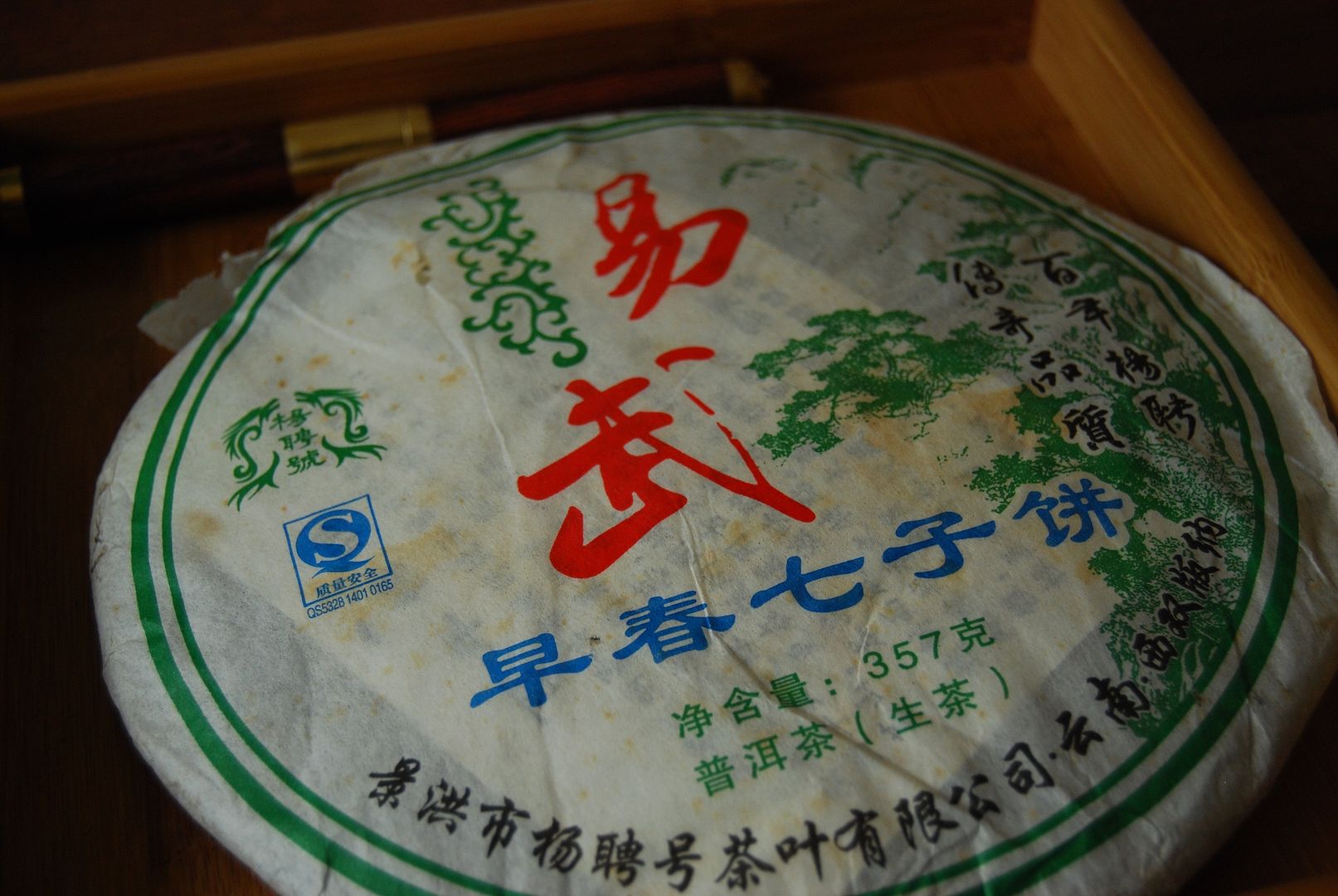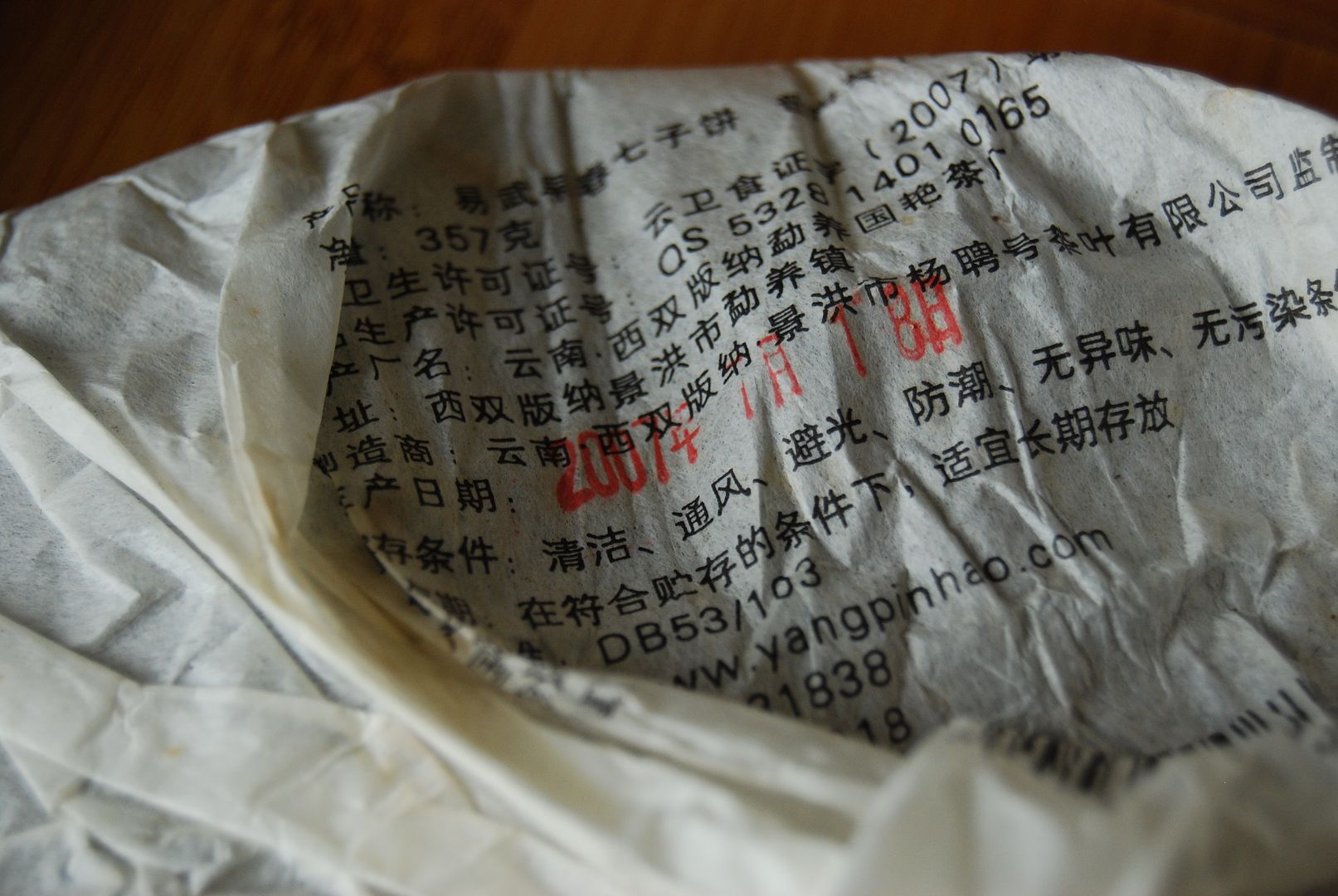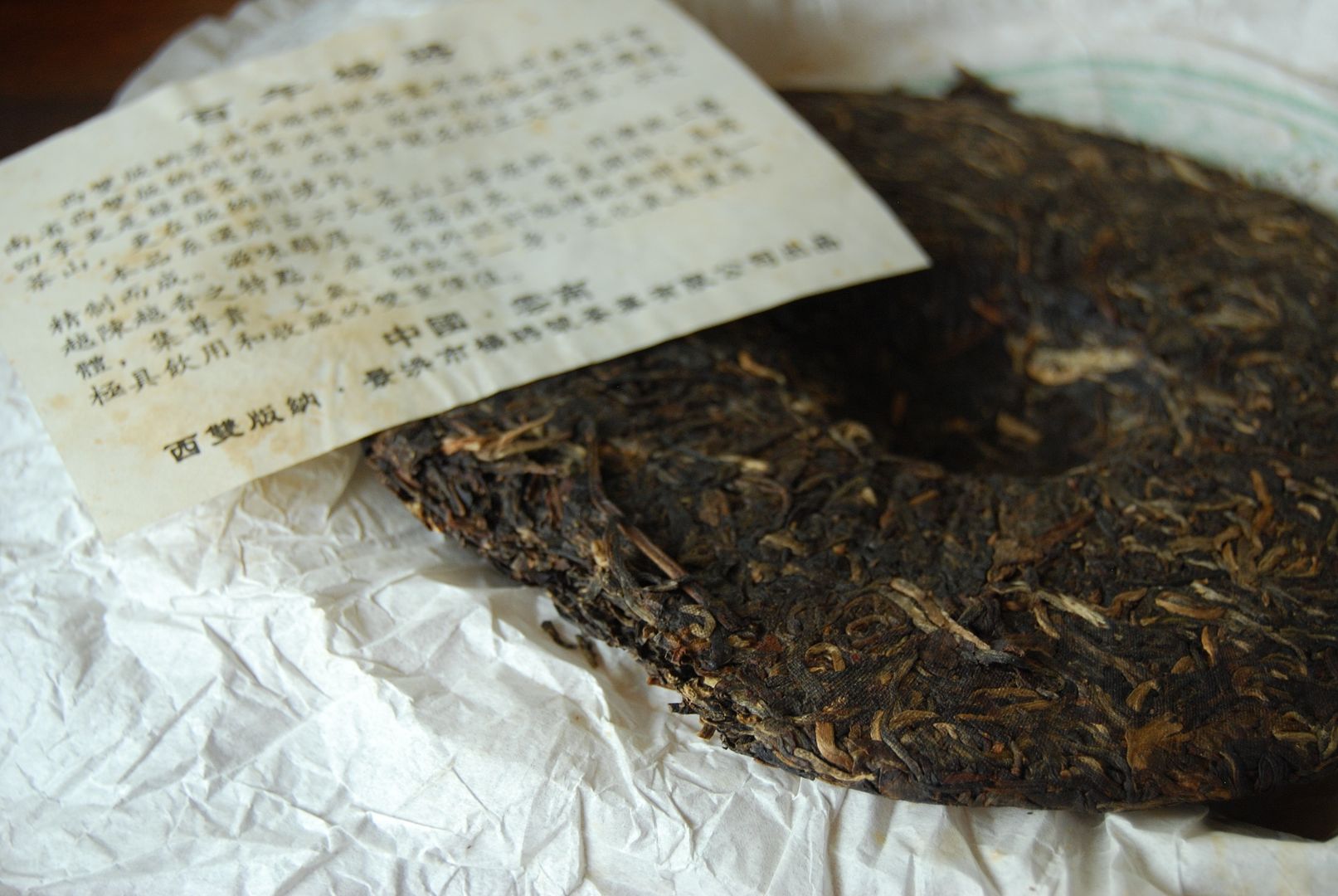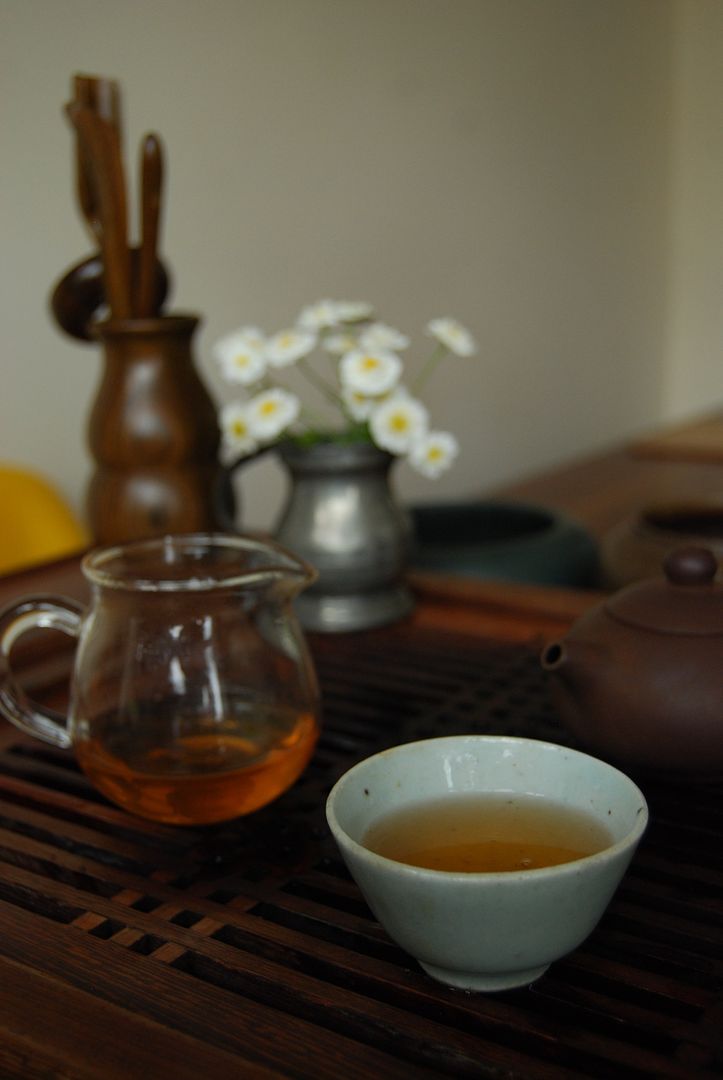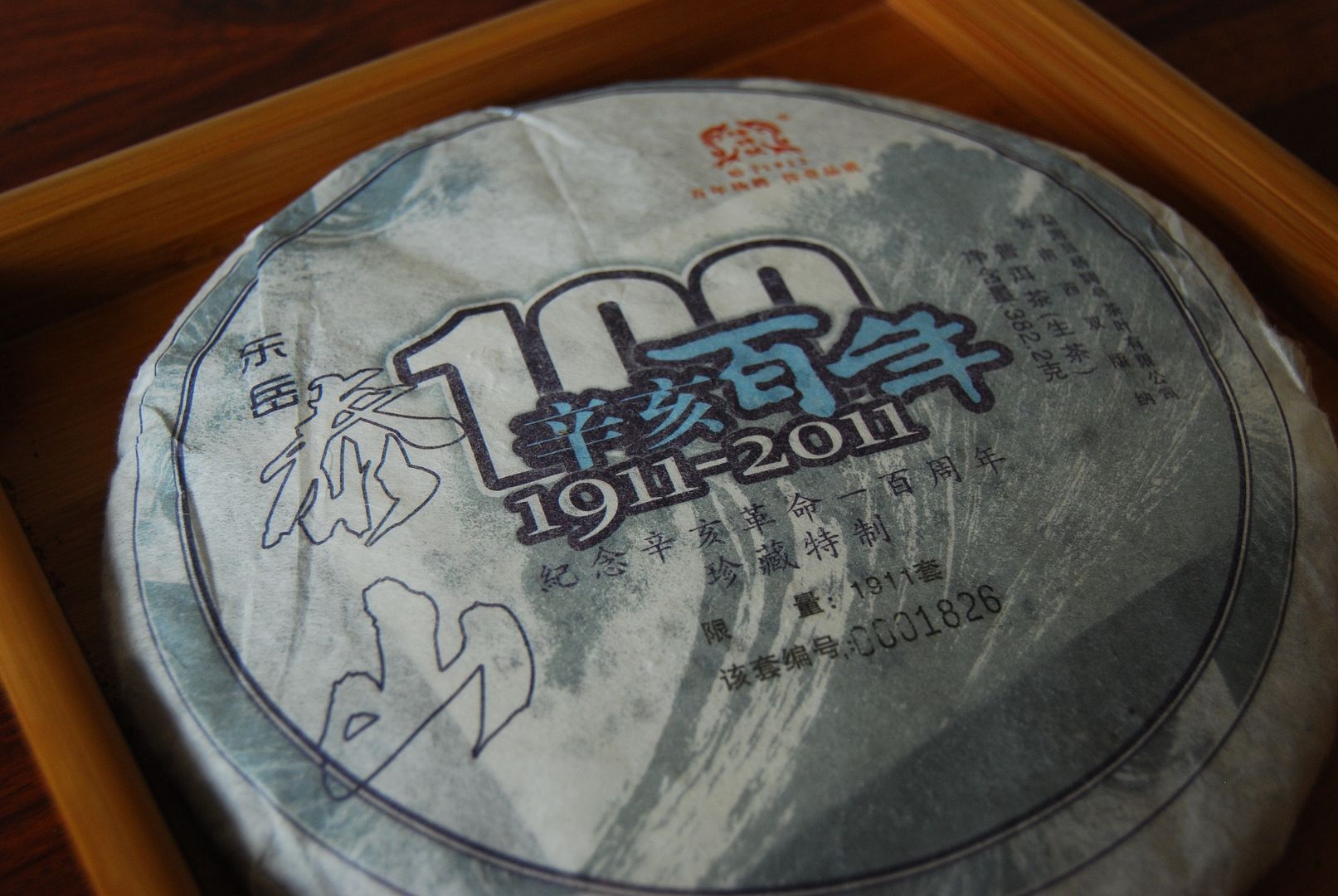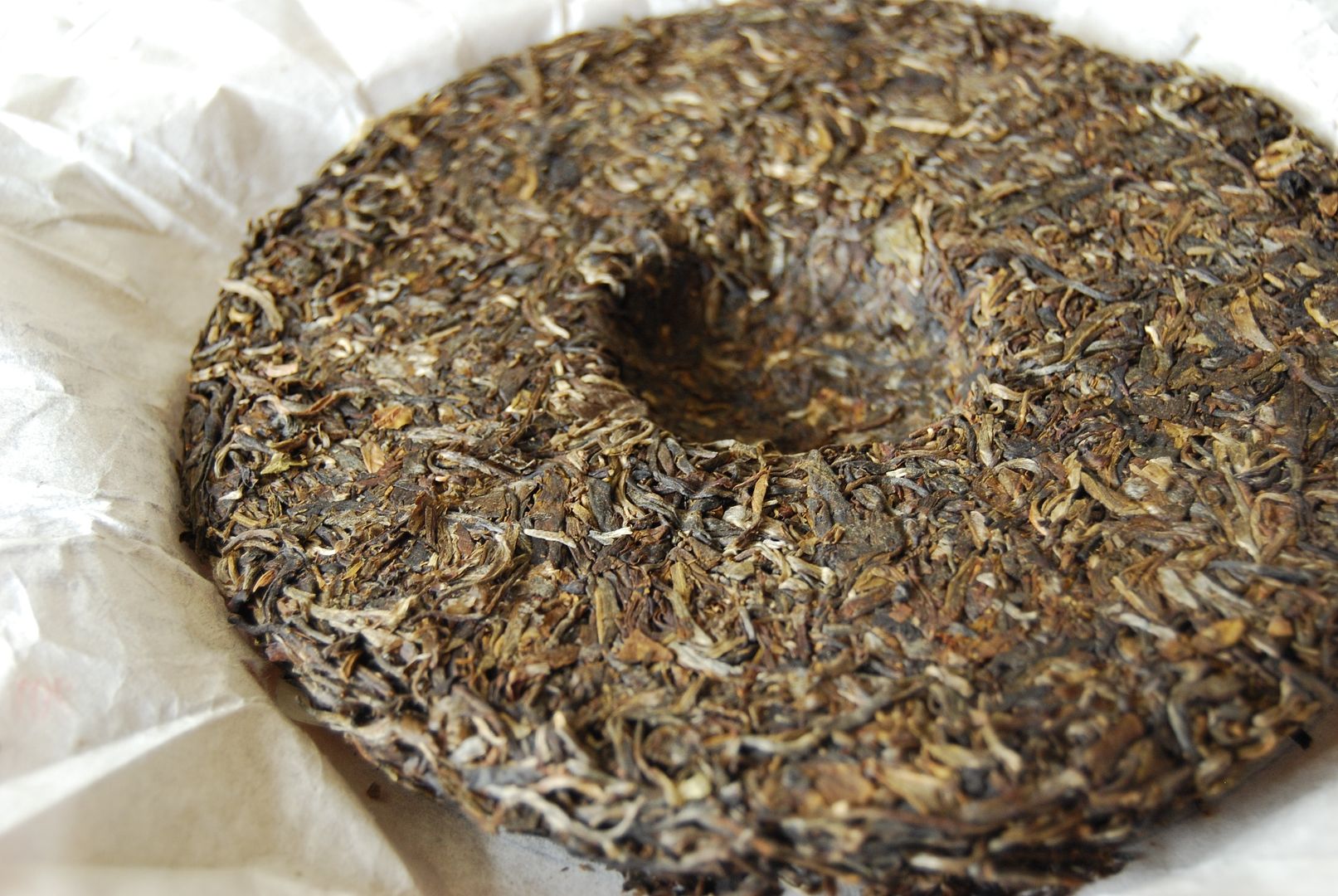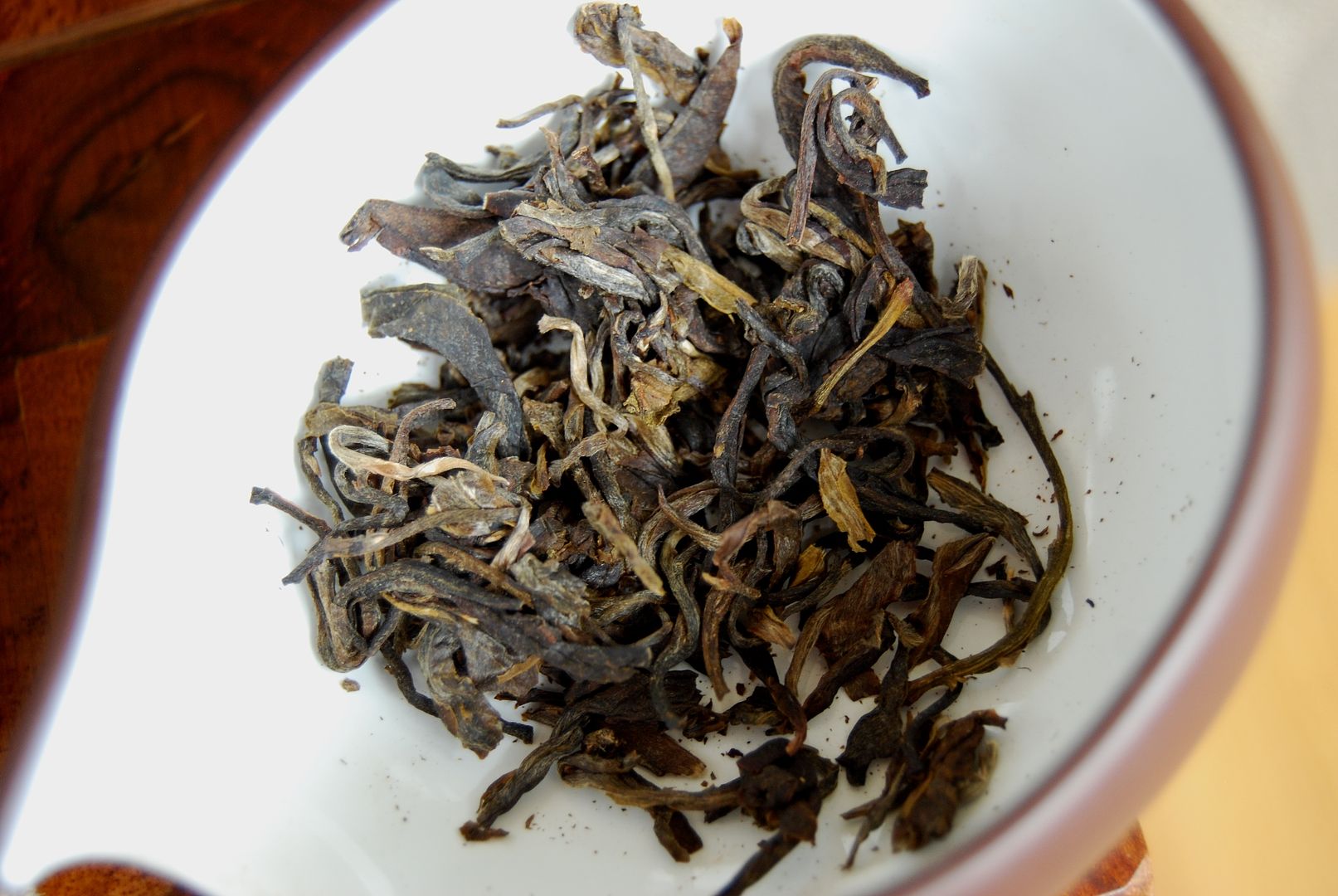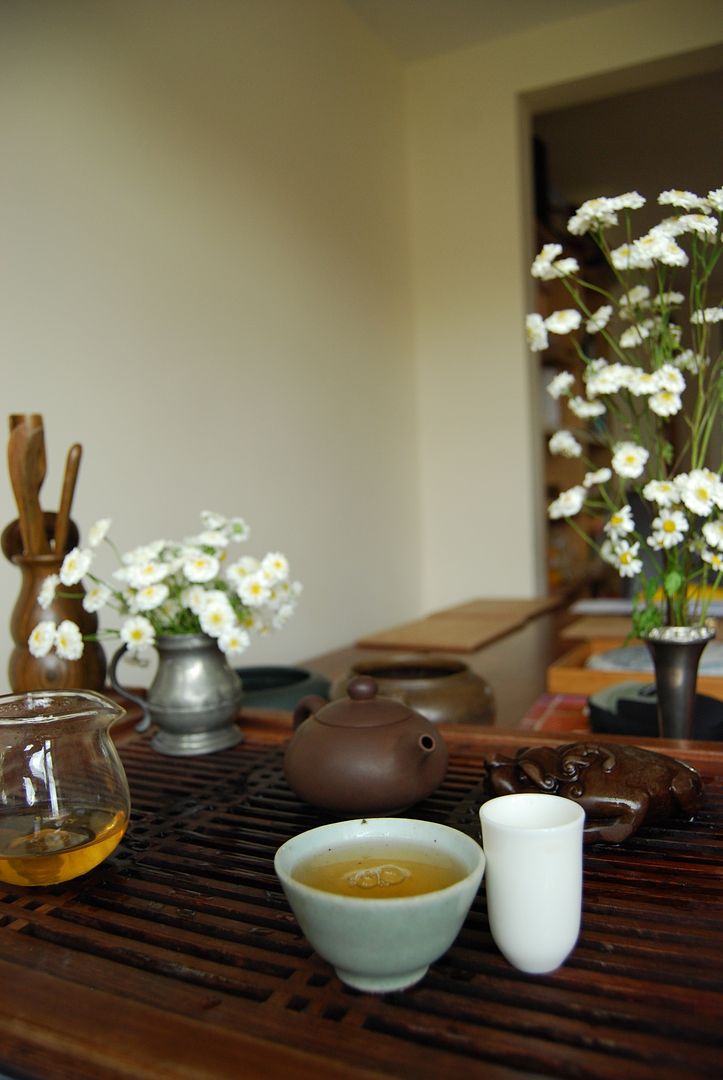Boom! No sooner have I just got ready to get back to Beijing and see my teafriend and erstwhile total dude Xiao Yunqing, among other encounters, then another sterling chap (PM from white2tea) sends me a huge pile of Taochaju teas.
I'm ready if you are: Taochaju is typically rather delicious.
This is the 2008 Taochaju "Laoman'e", which has been stored in Fujian (for some reason). The large, flat leaves, pictured below, are well-preserved in their integrity and slightly brown in colour. The scent is a touch quiet, but interesting.
Laoman'e-region cakes can go either way: you're either all-in for a kuwei [good bitterness] session, or you're not. People don't tend to be ambivalent about Laoman'e. For what it's worth, I rather like the place.
Like many of Xiao Yunqing's cakes, this takes a while to get going. The scent in the wenxiangbei [aroma cup] is absent, at first, but then builds to a complex sweetness. Likewise the flavour of the orange soup (pictured below): the opening is clean sweetness which rapidly builds into a finish of potent kuwei.
It has rich, low notes of tobacco for the nose to enjoy, and currently has a tangy flavour, with something of molasses about it. The sticky darkness reminds me of dark chocolate.
"This tea is above average", notes my dear wife, damning it with faint praise. Nevertheless, I rather like its continuing sweetness. By the seventh infusion, the soup darkness begins to taste suspiciously "particulate", as if that aspect of the tea were introduced by the processing.
Nice, but not one of Xiao Yunqing's best. It seems to be out of stock at white2tea, where it sold for $88.
Onwards, and hopefully upwards!
This 2011 "Mengsong Guyun" currently sells for $32 at white2tea, where the cakes were actually pressed in 2012. Xiao Yunqing often has some sort of lag between maocha age and pressing date, and I may be right in recalling that this is because he bought maocha from previous years in his recent visits.
For $30, you get some very pretty, long leaves, shown above and below. They have a highly advanced and rather fruity scent.
Thick in body, with a lightly cooling finish, I find it to be quite strong and rather energising. There is a decent flavour of pseudo-'Banna robustness, but I find it difficult to love it too much. Yikes, my journal ends with "The Mengsong is rather ordinary". That said, it is priced at a very low level, and makes no claims to being other than straightforward.
See also the 2011 Taochaju "Banna Guyun", the 2011 Taochaju "Nannuo Guyun", and the 2012 Taochaju "Guafengzhai".

